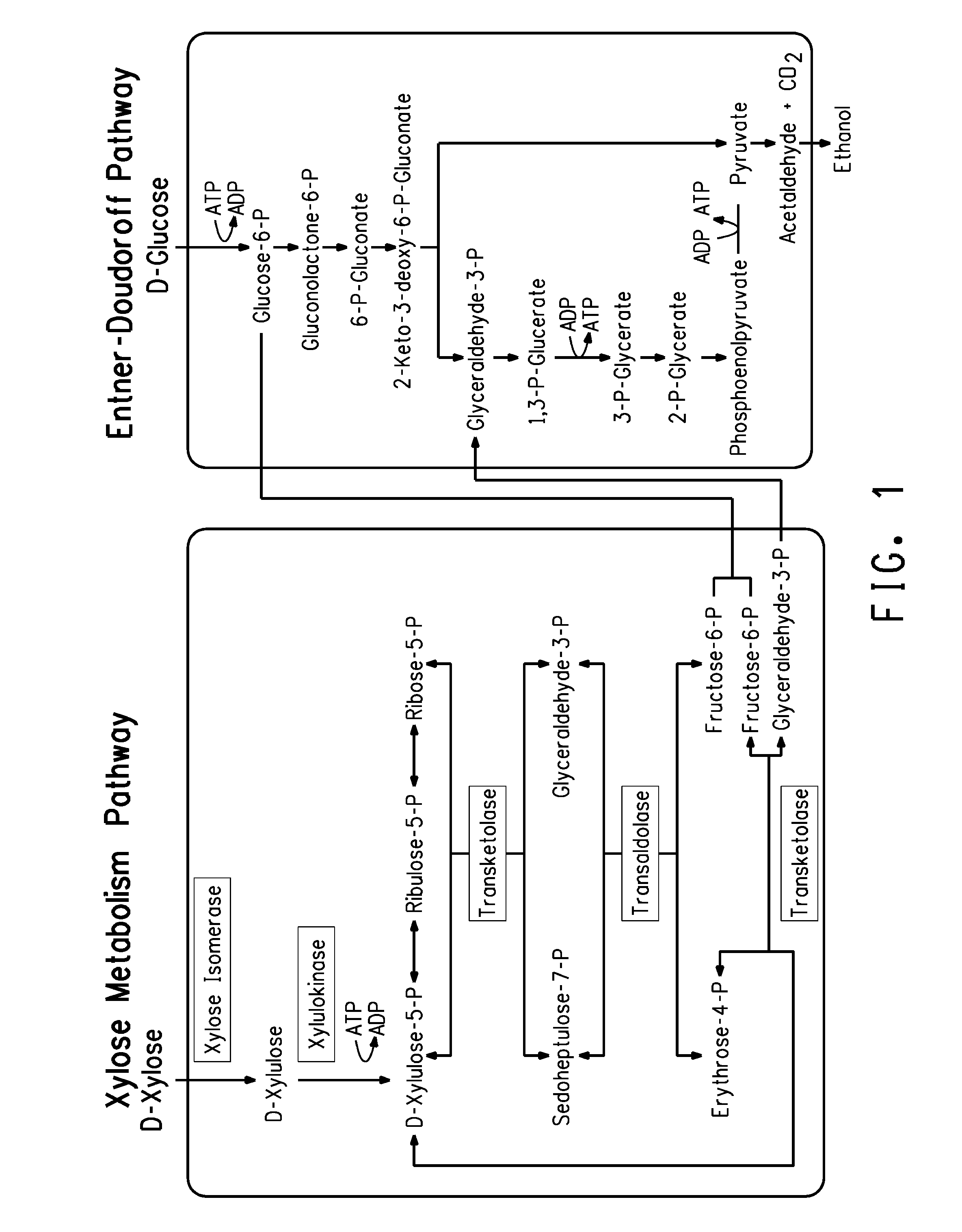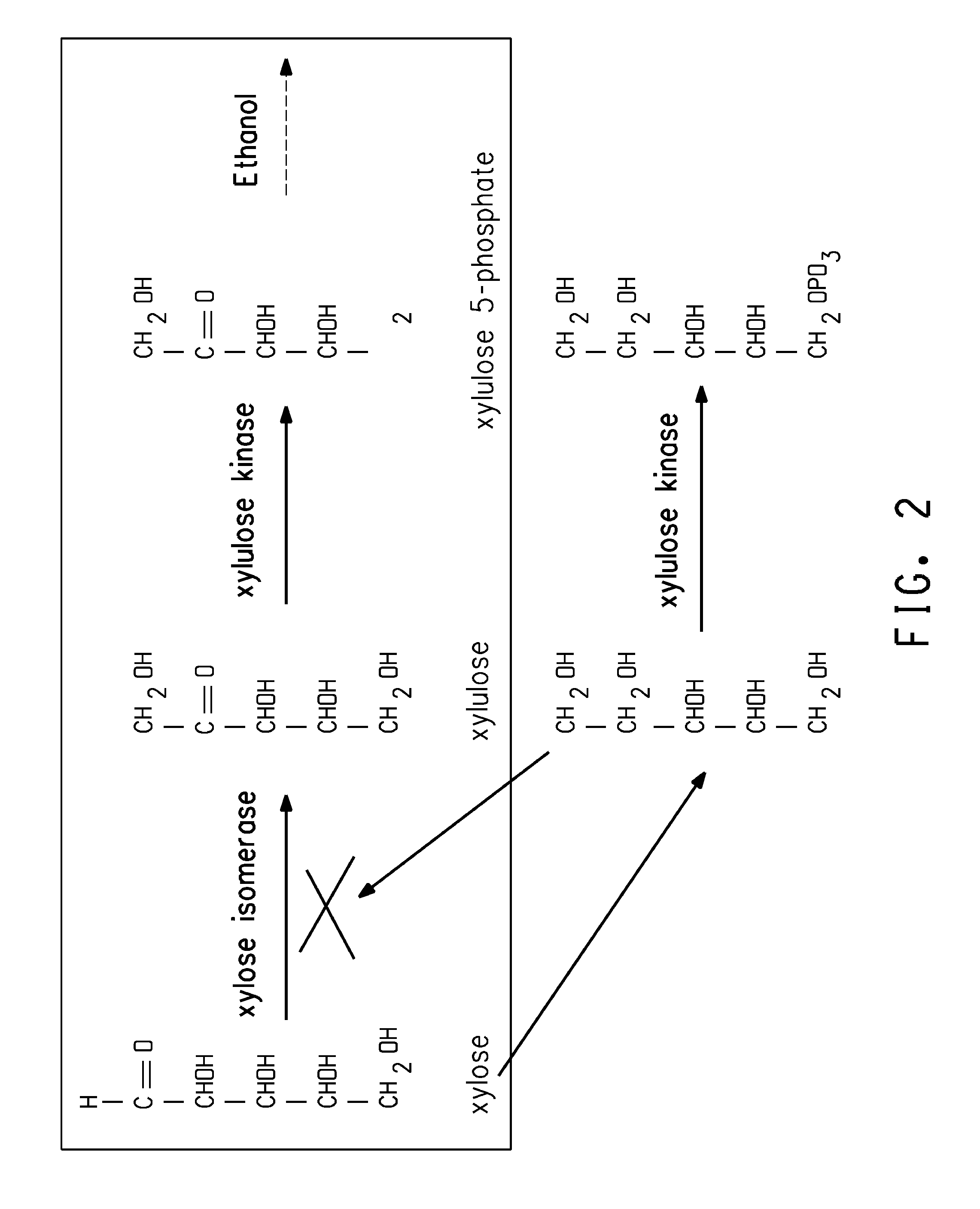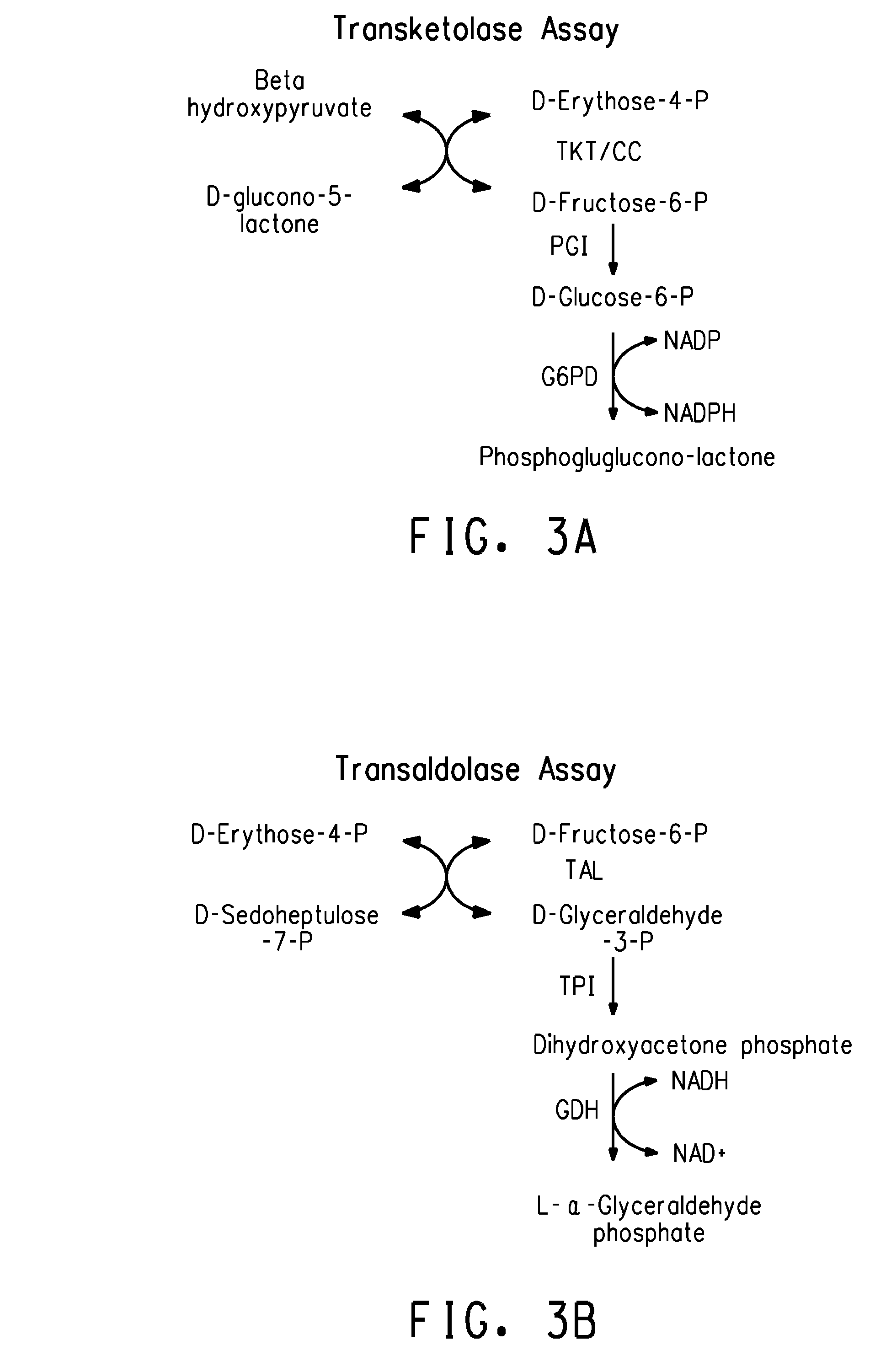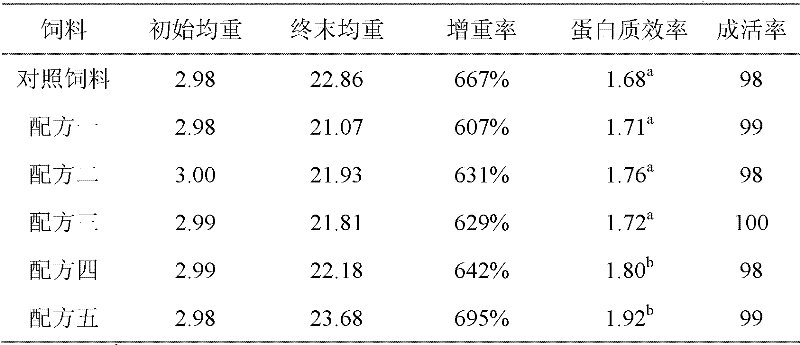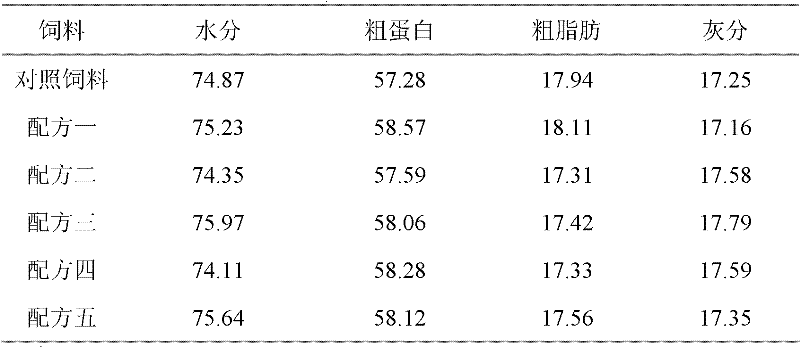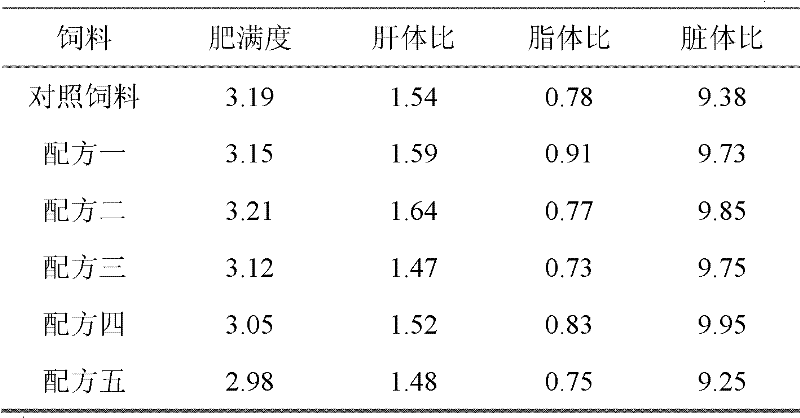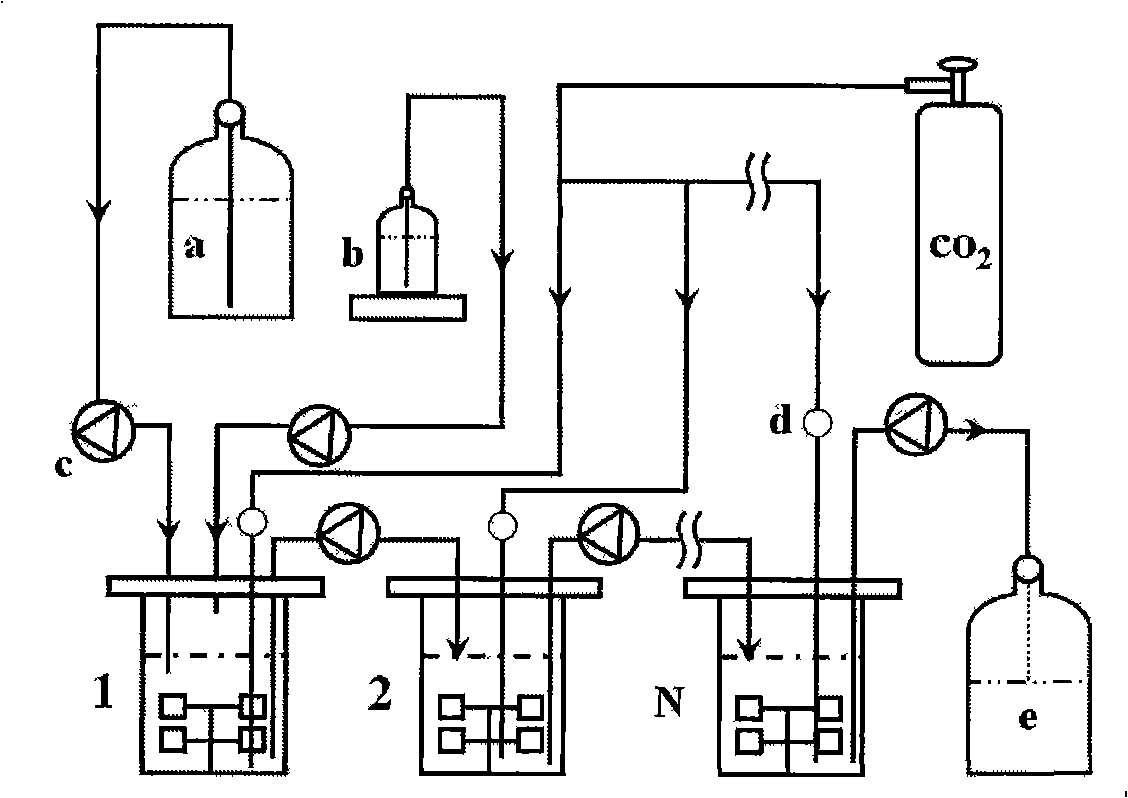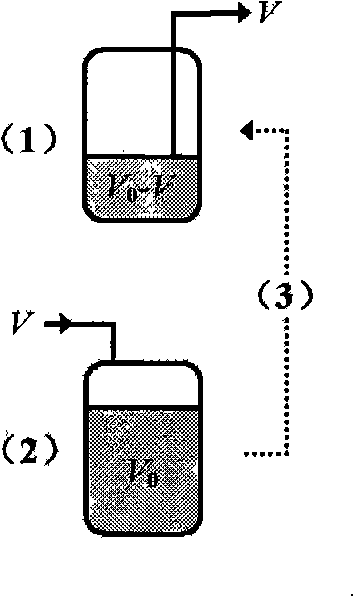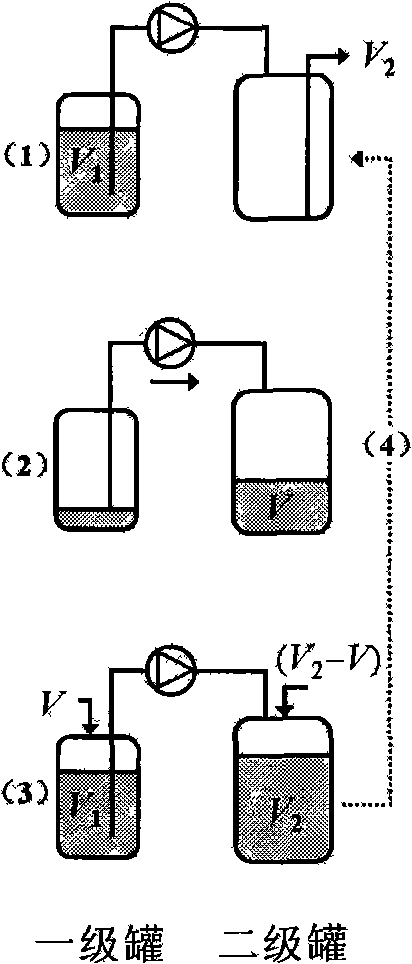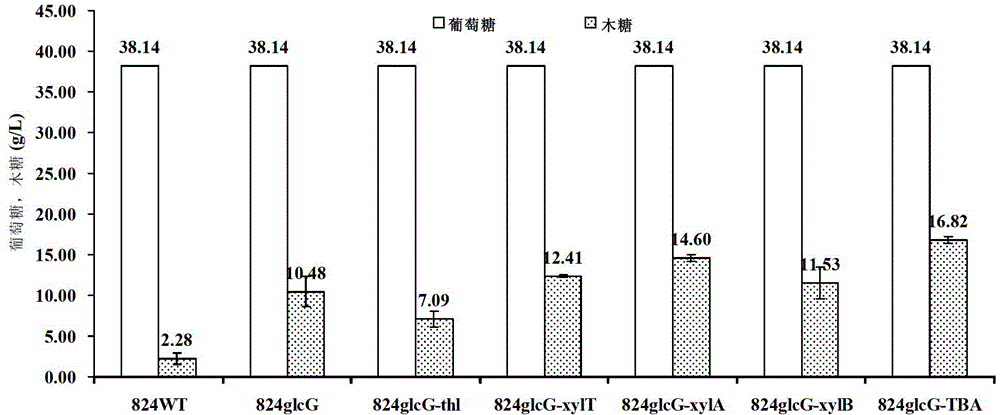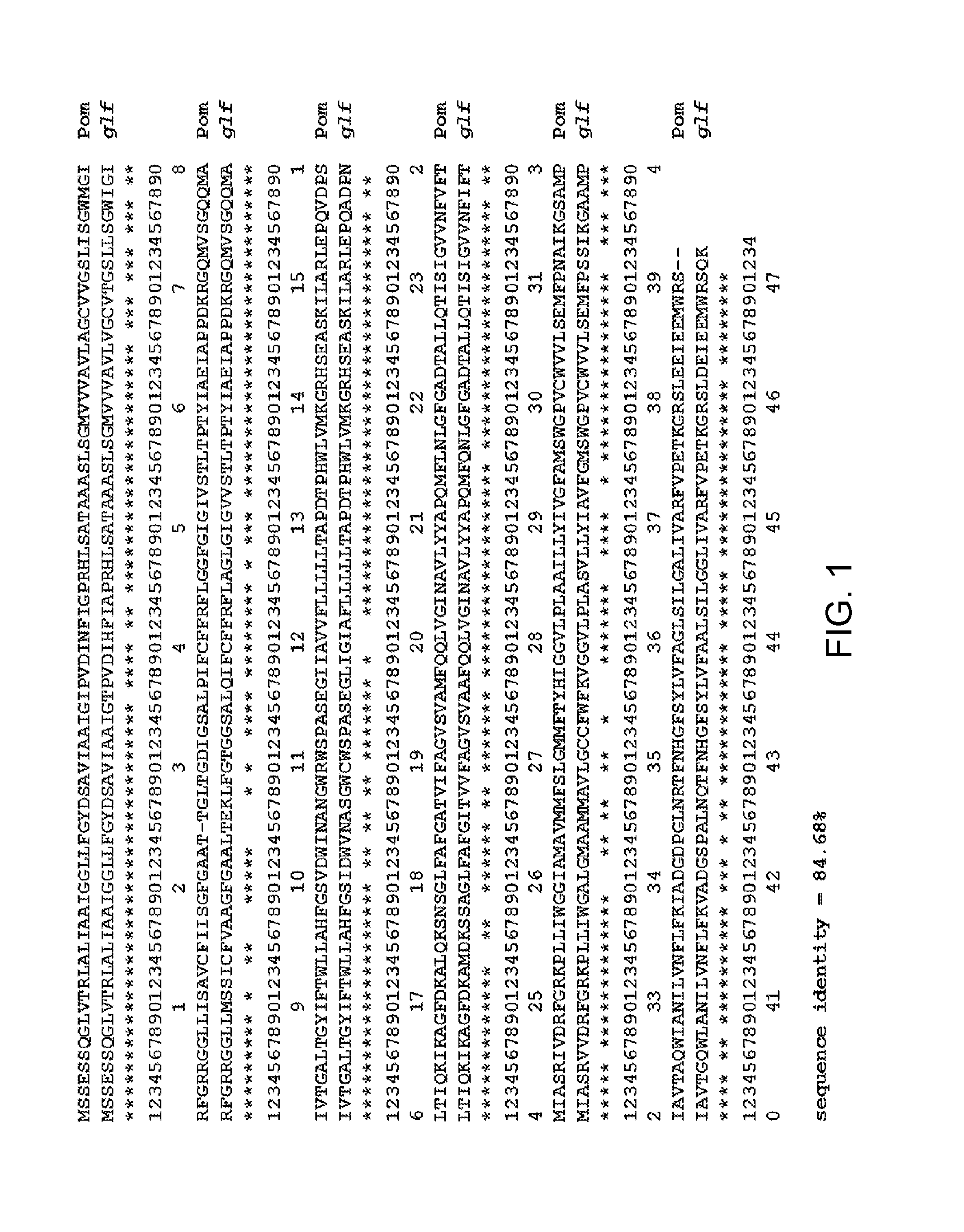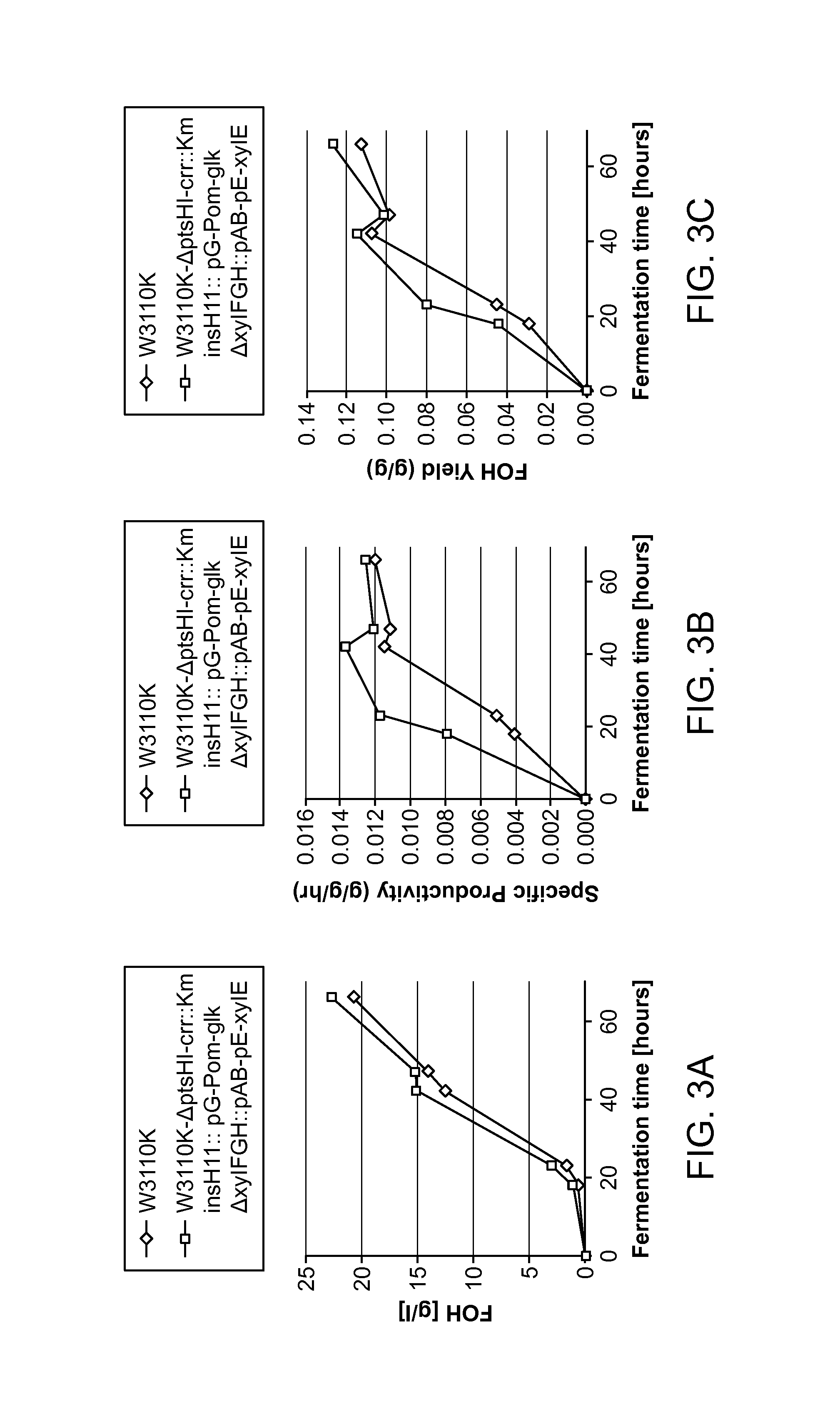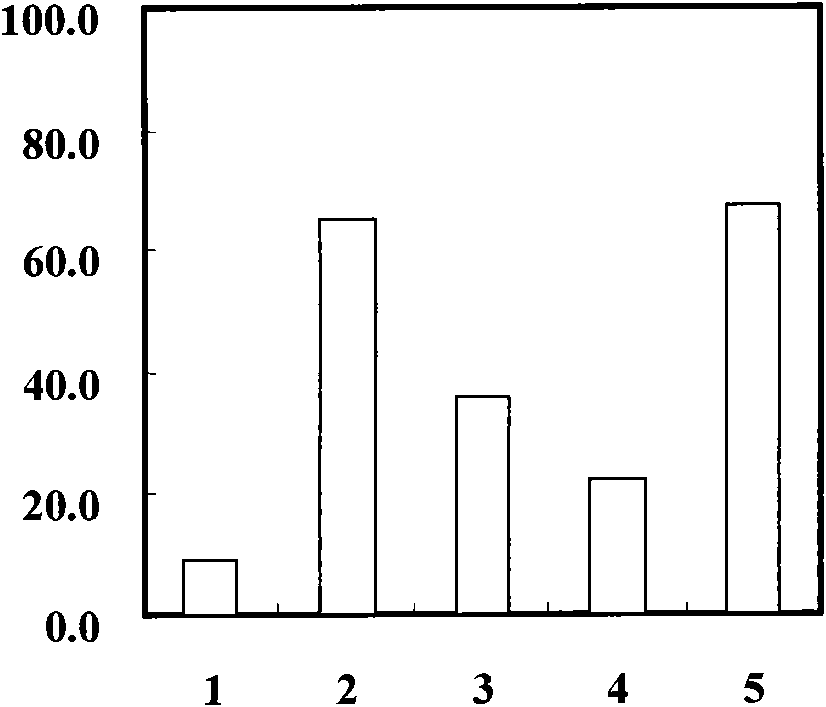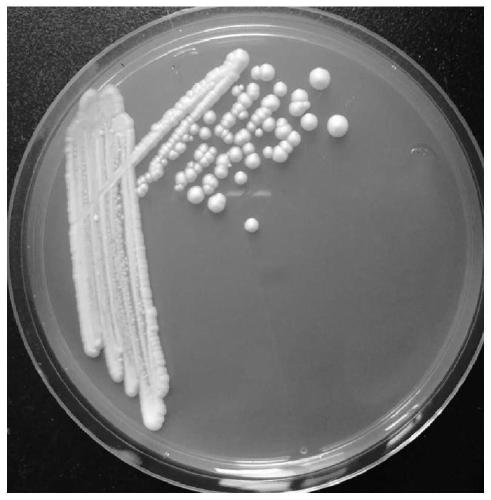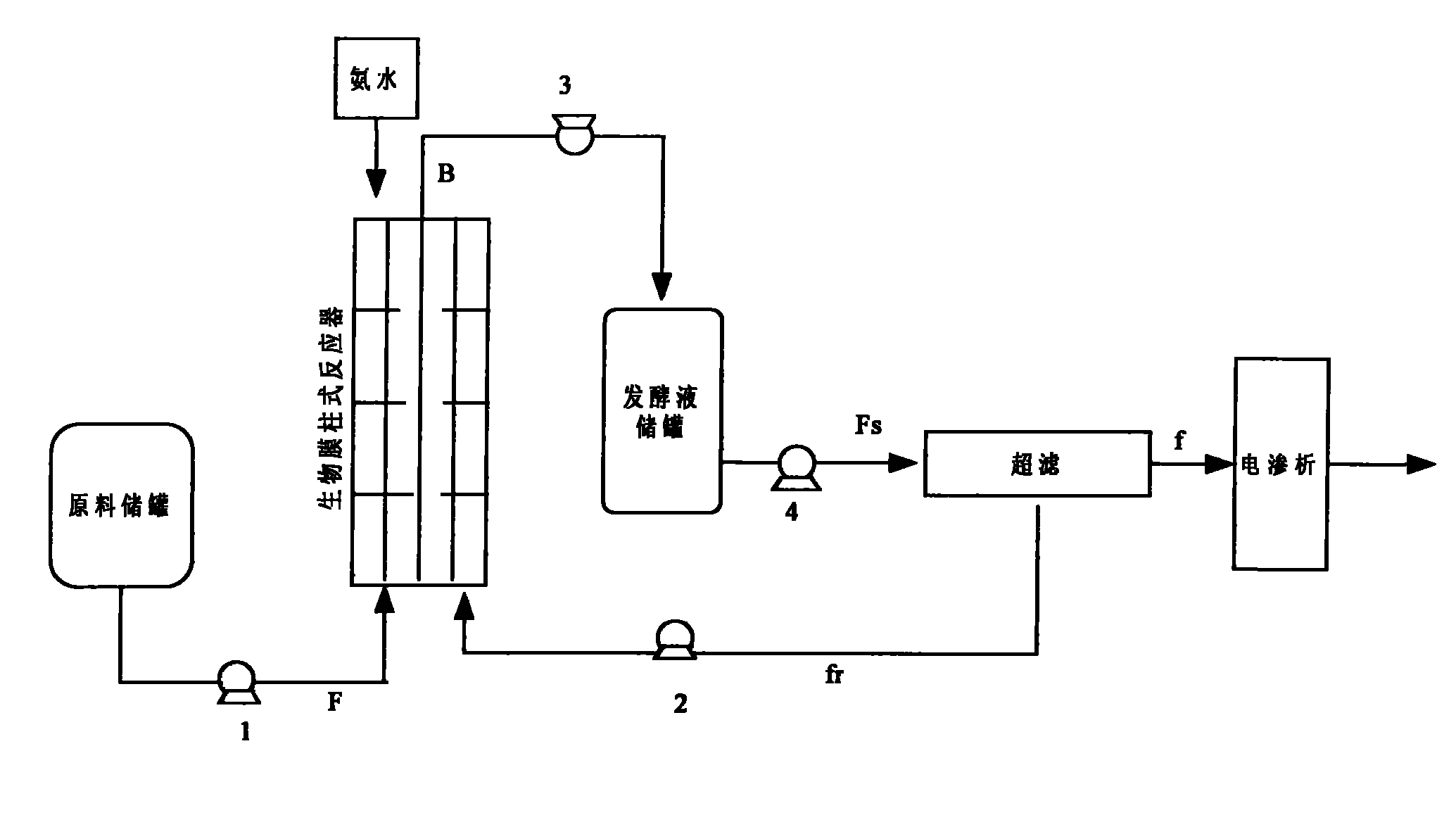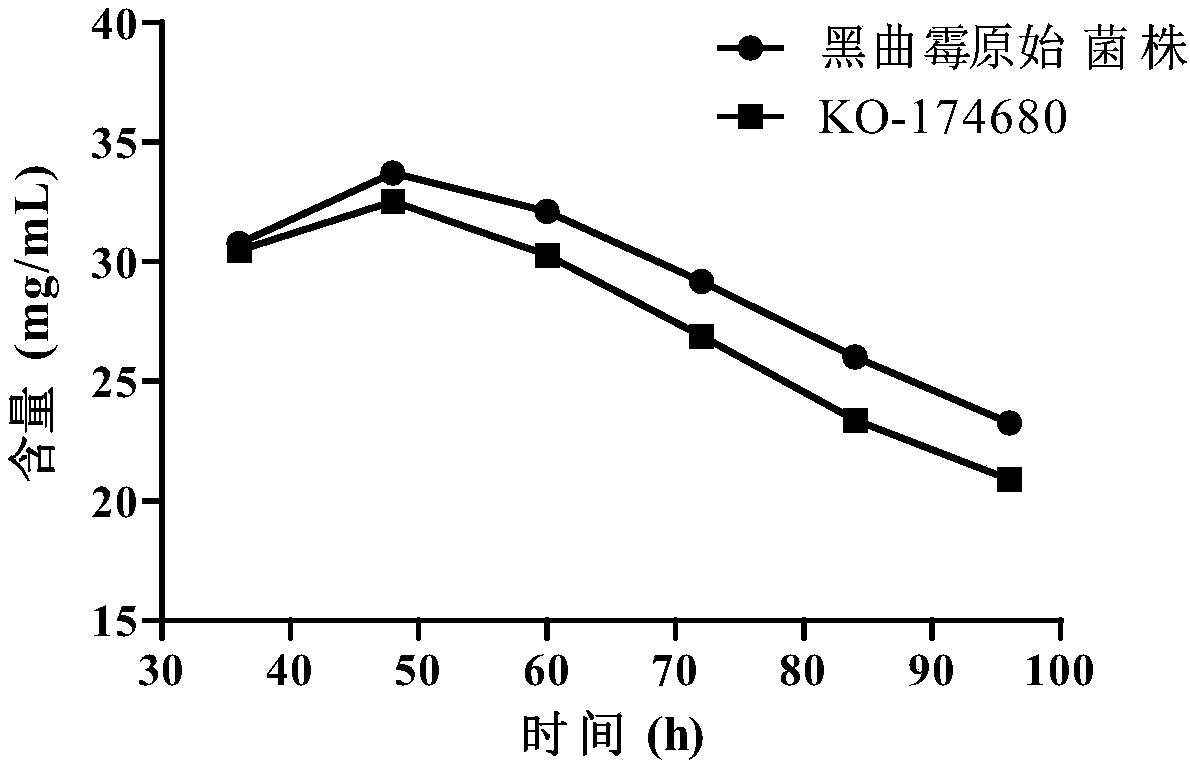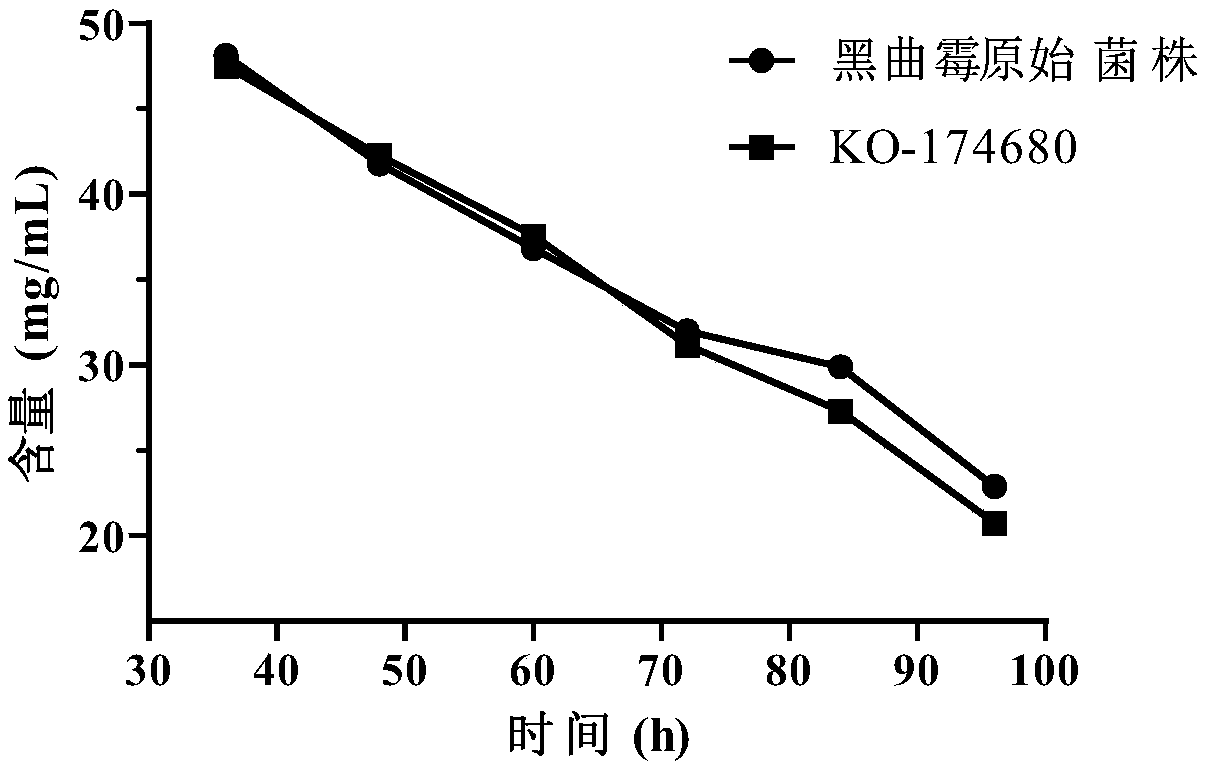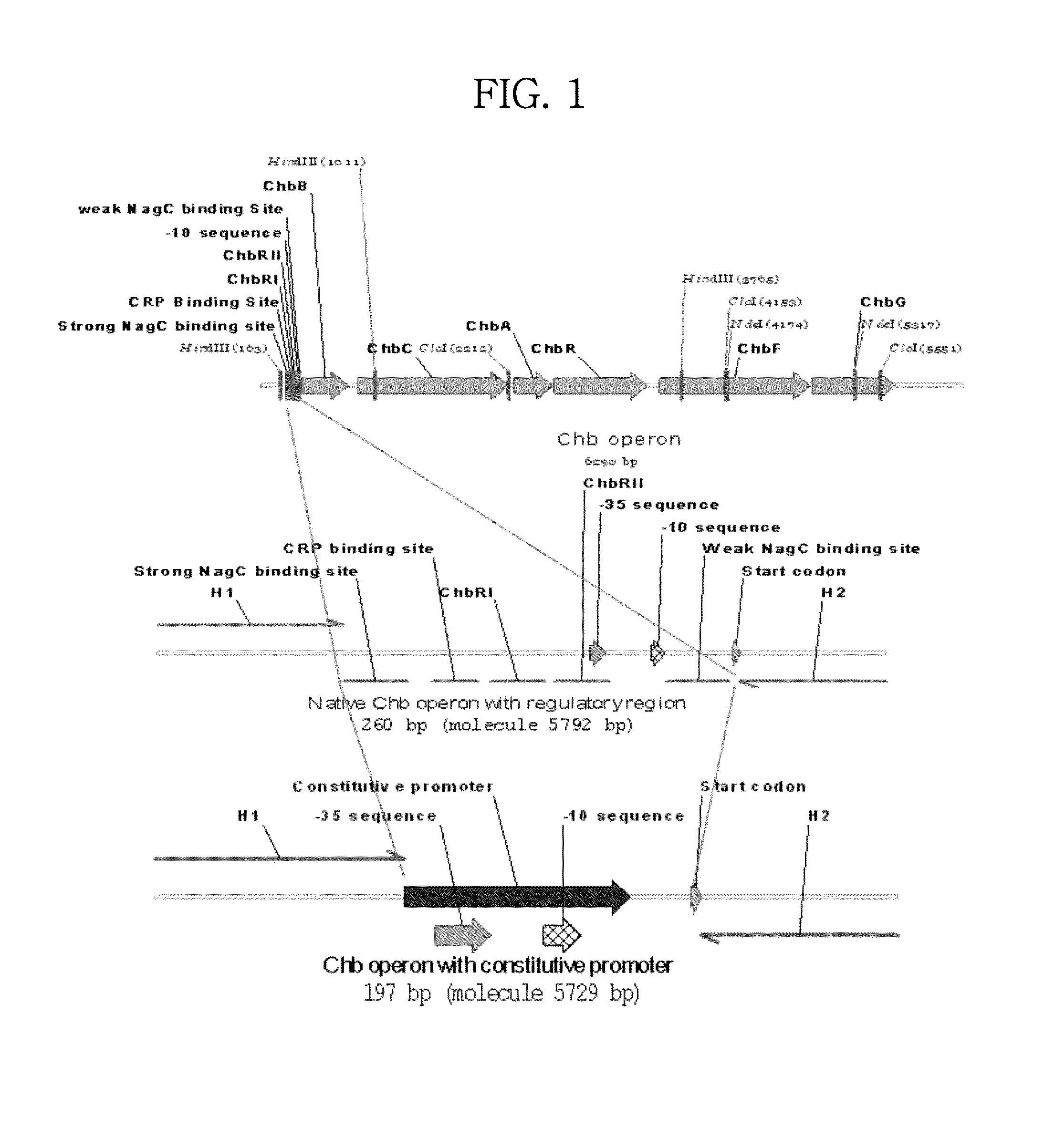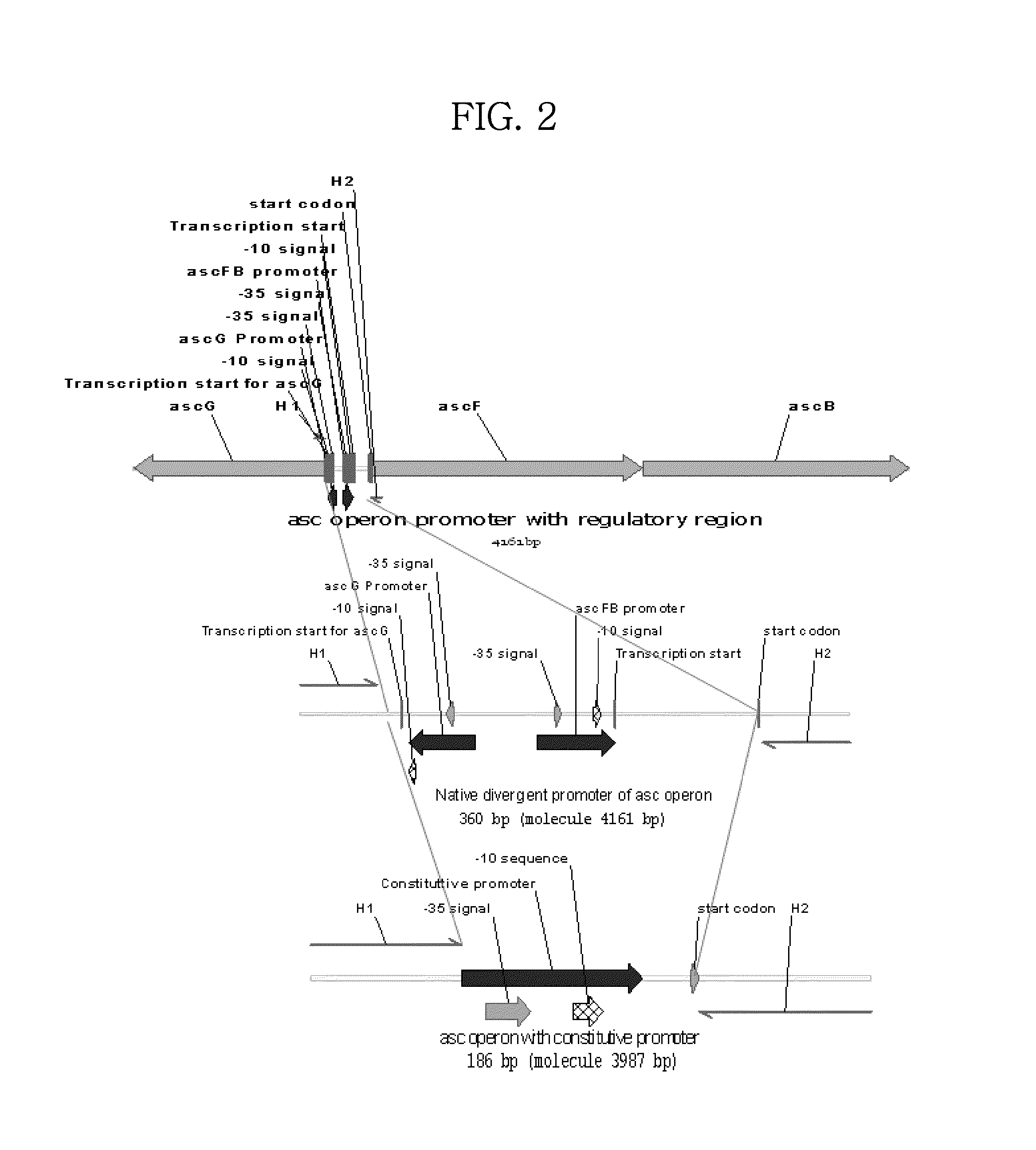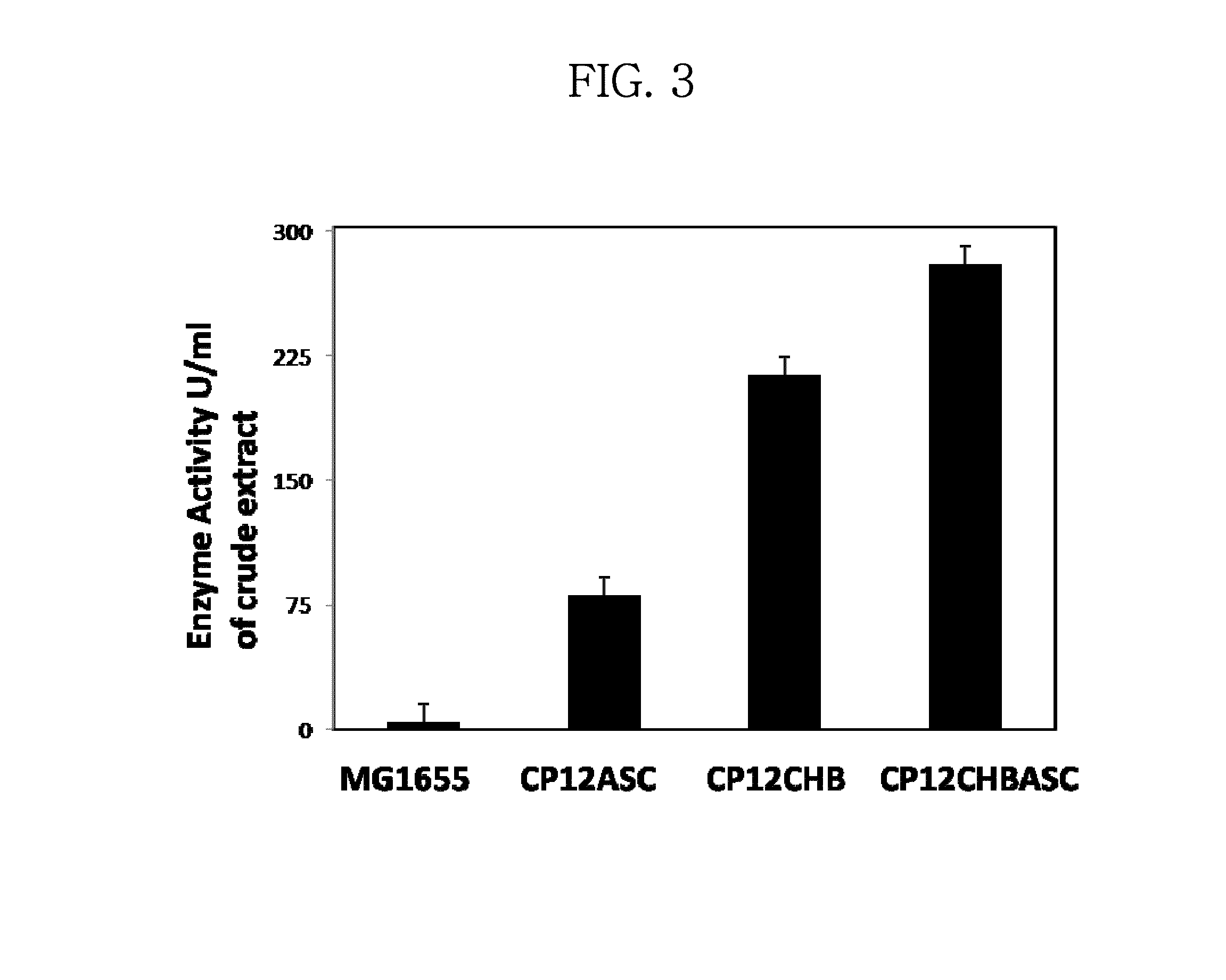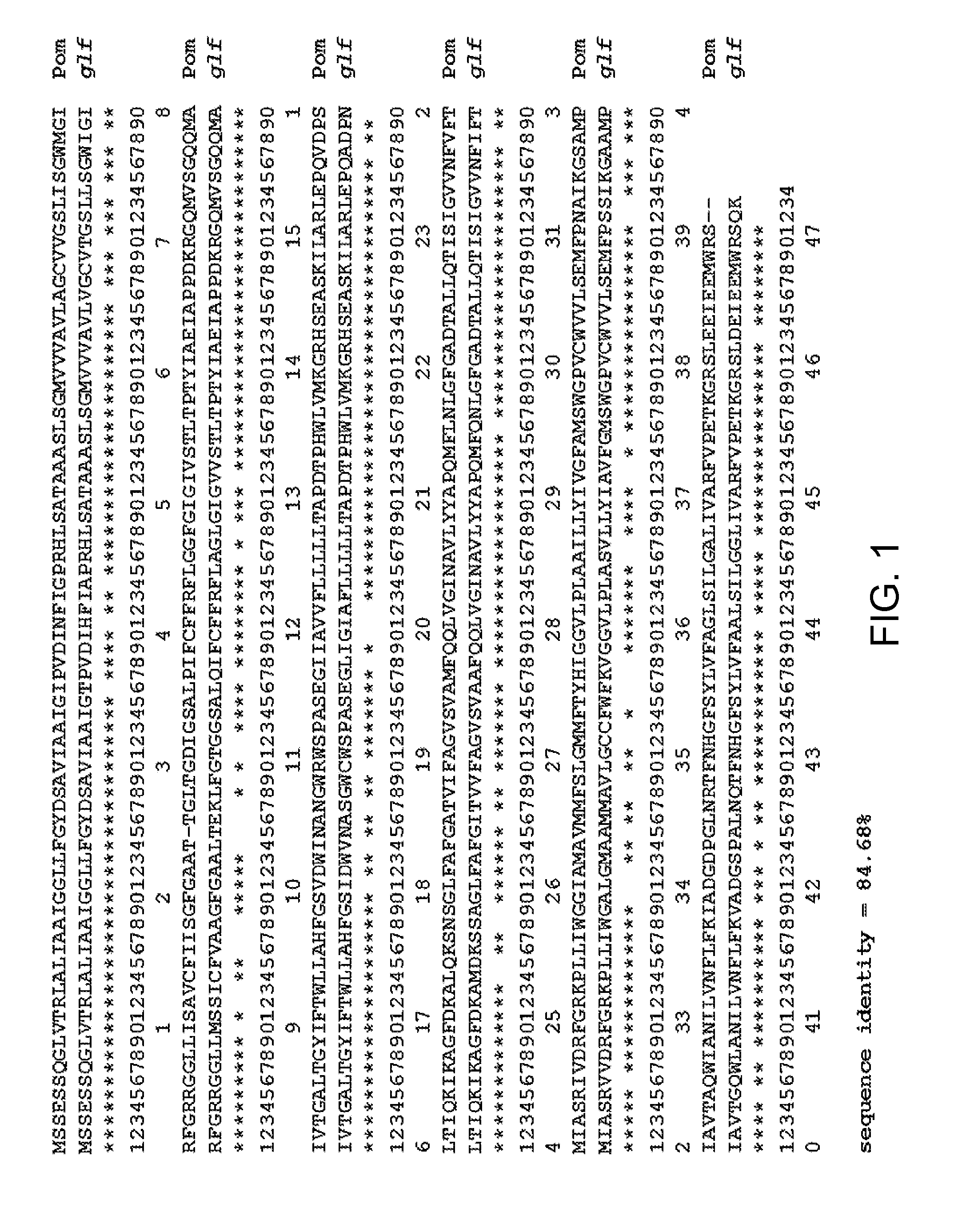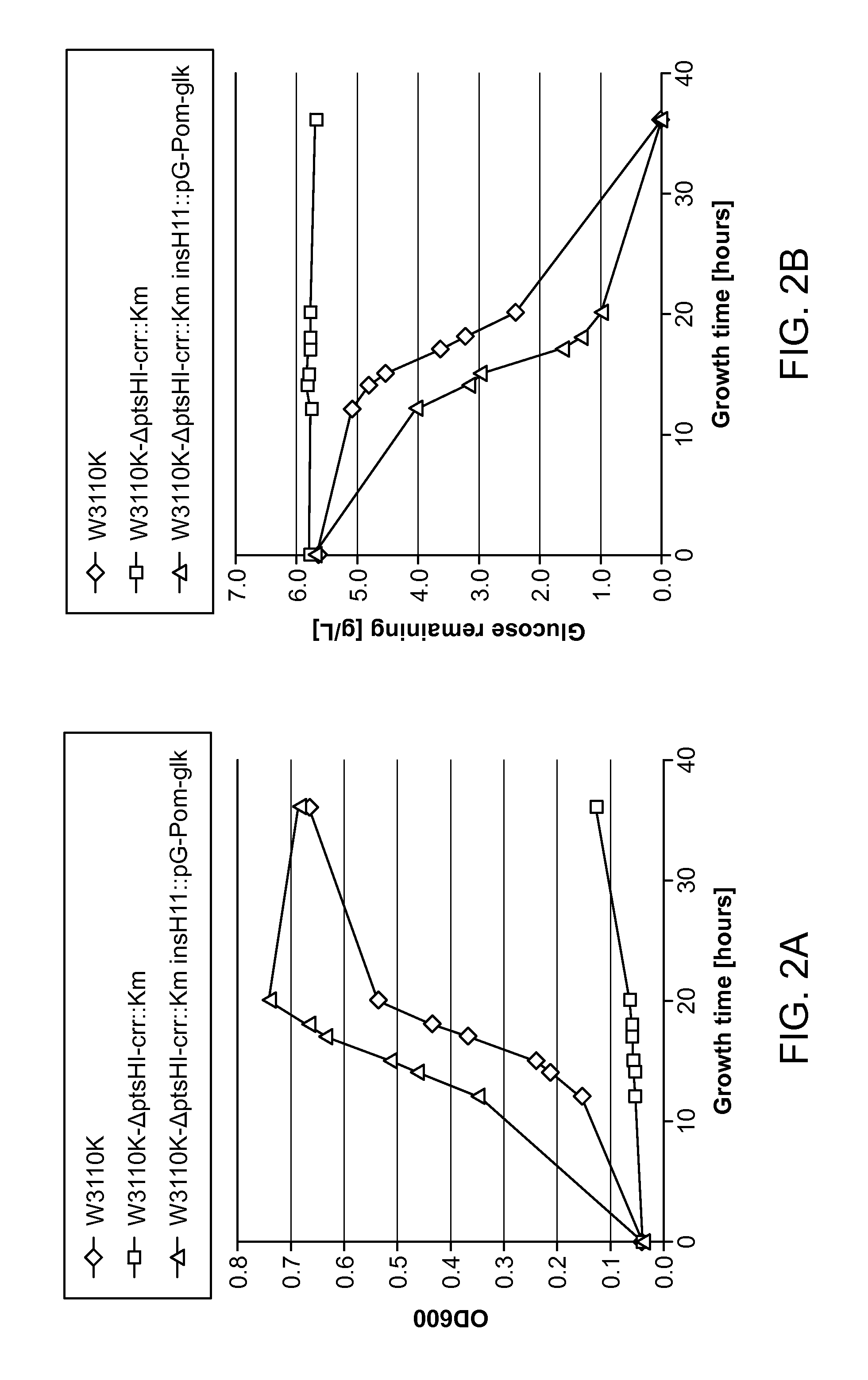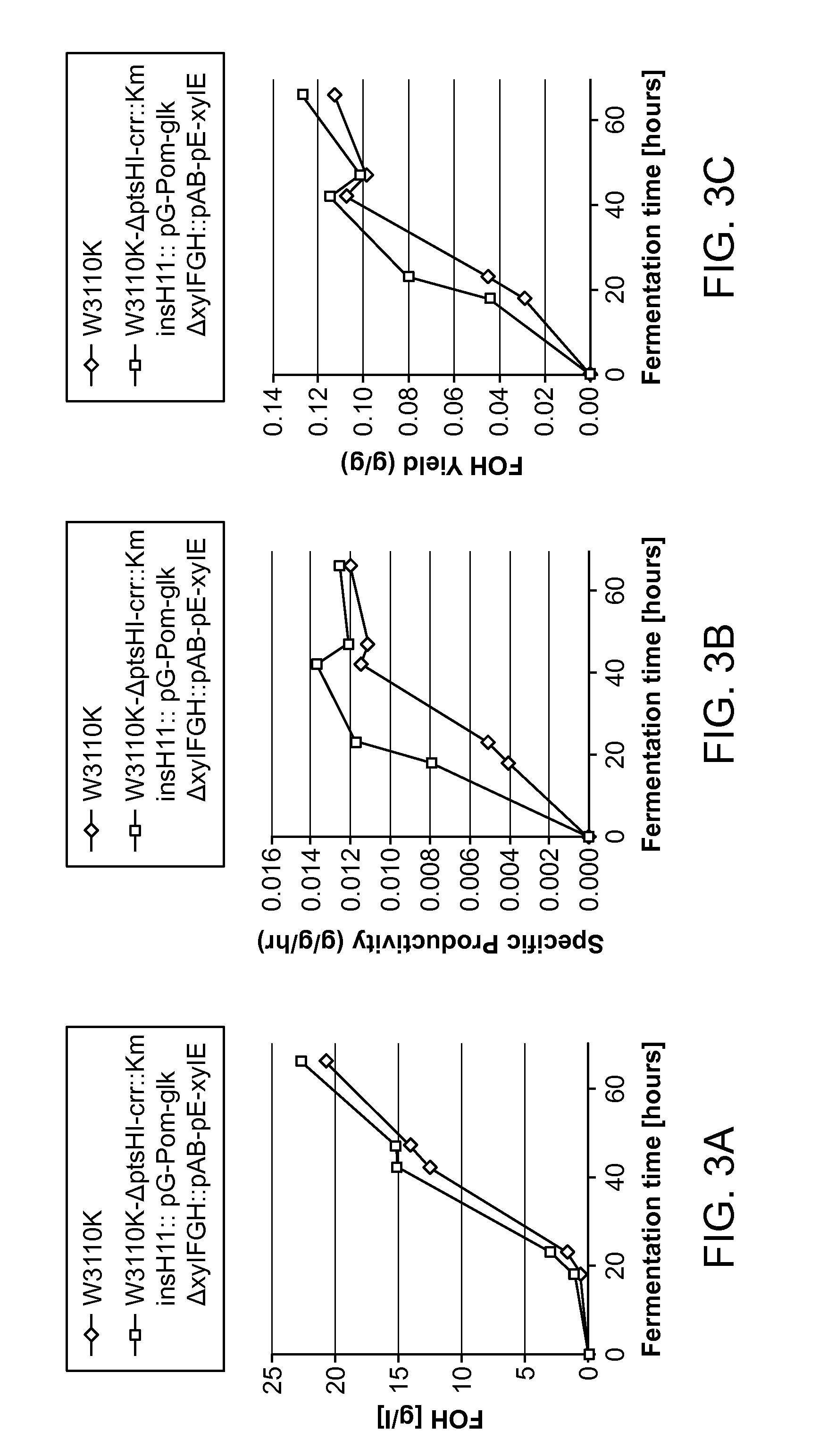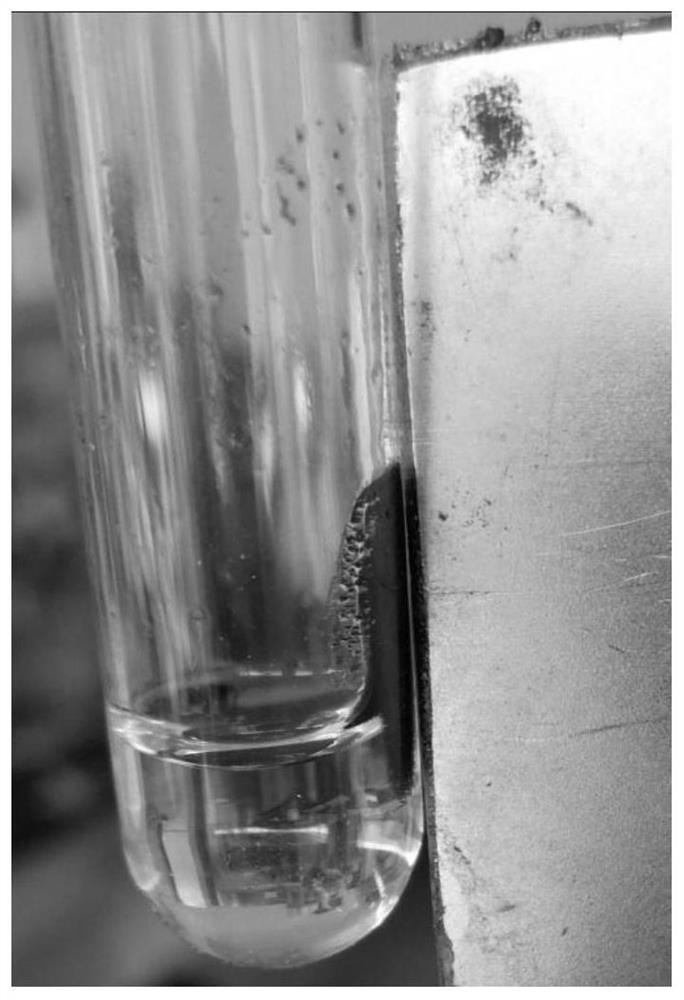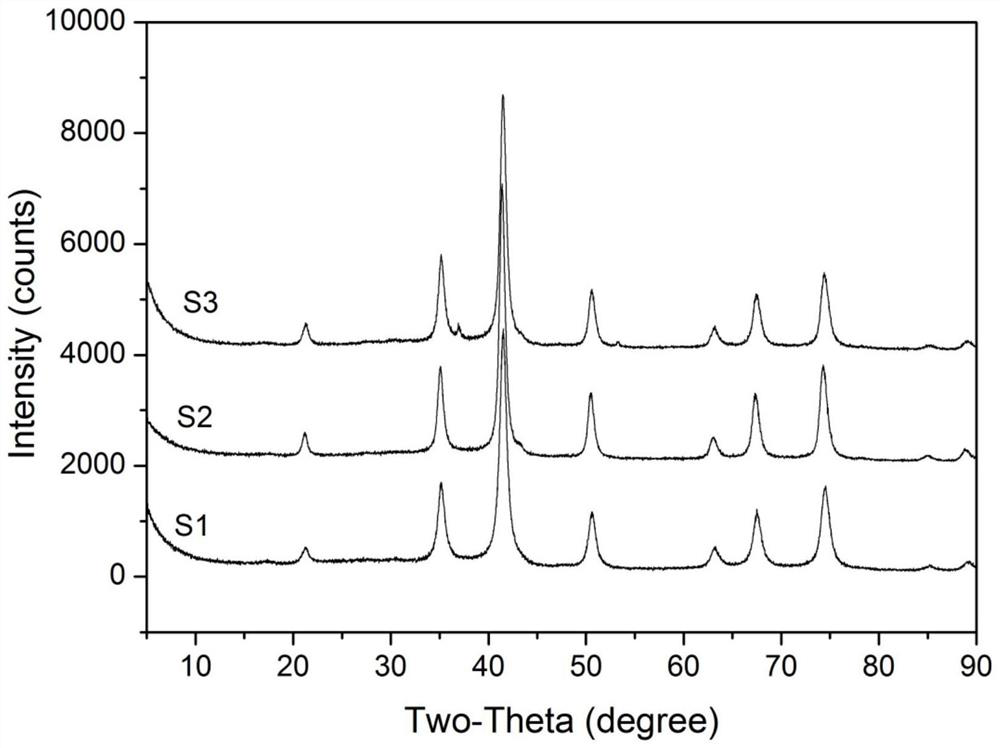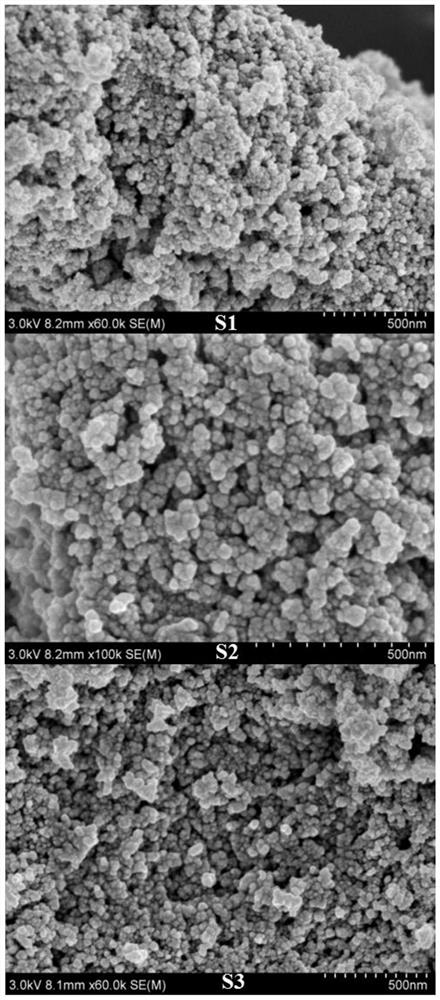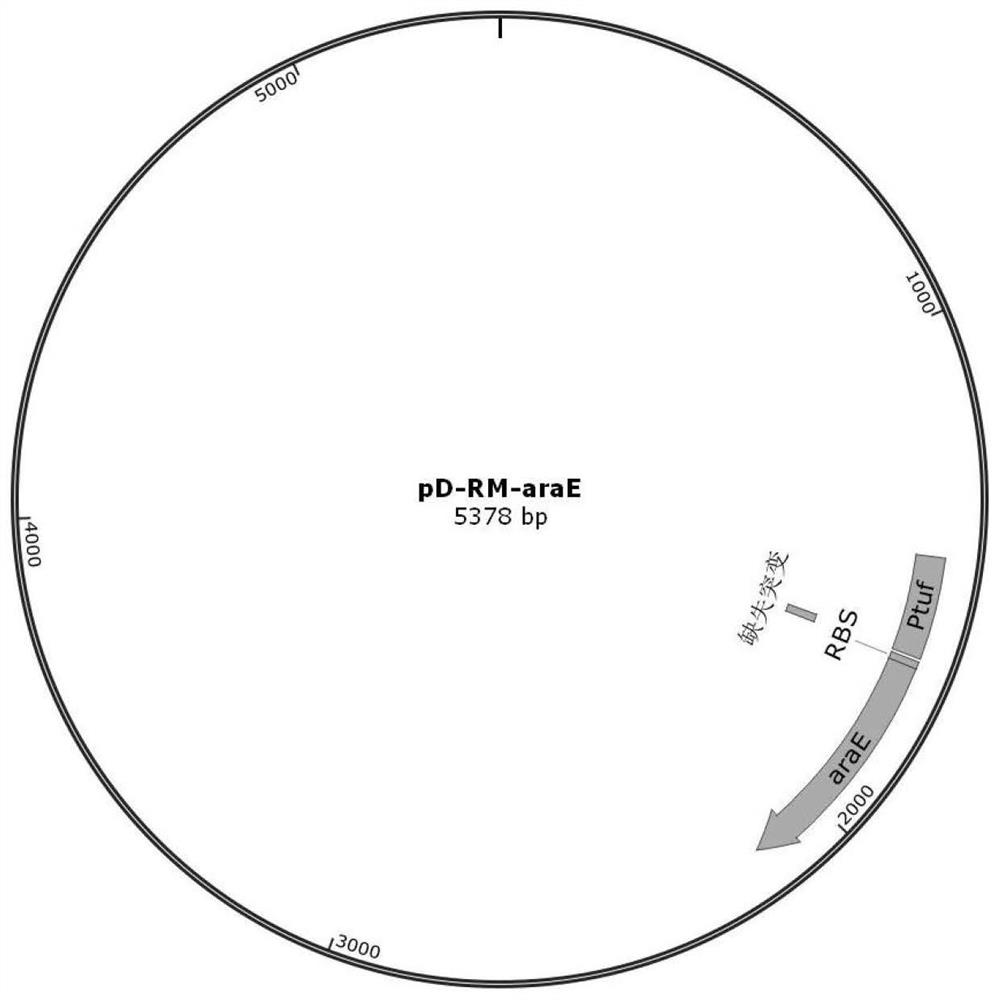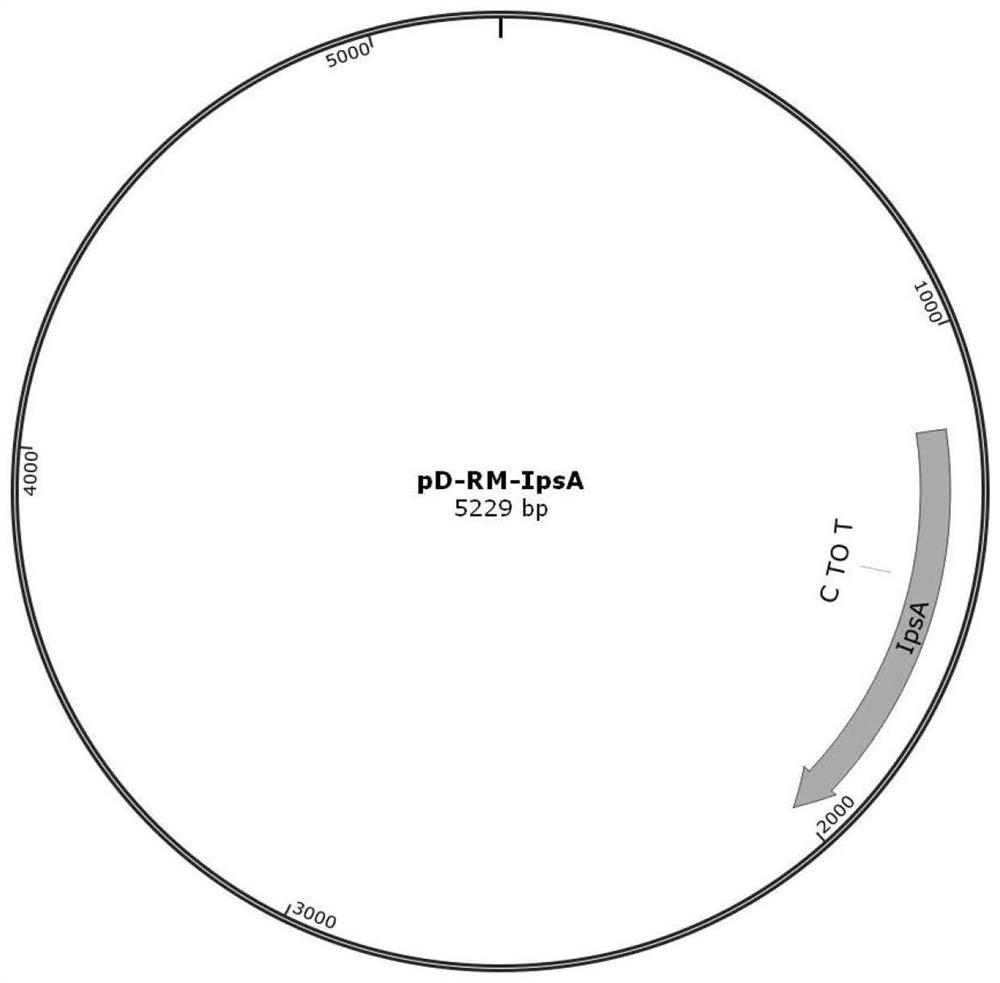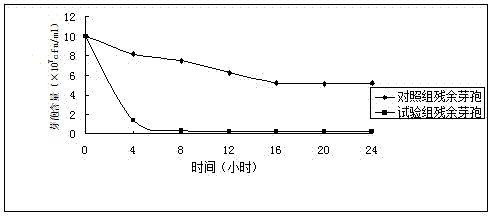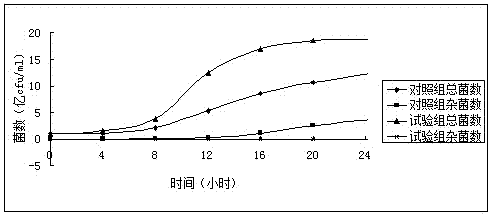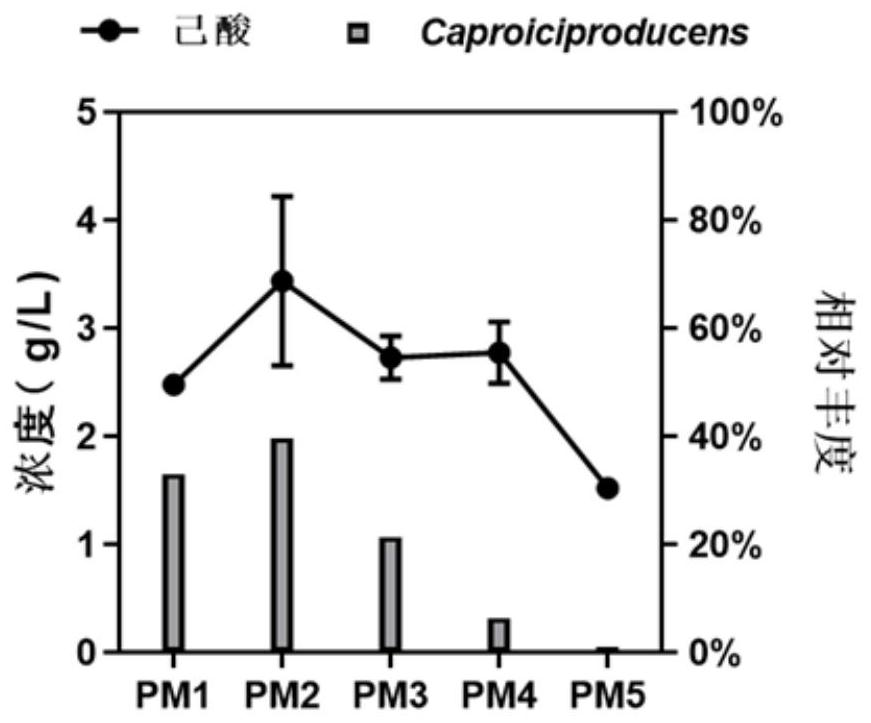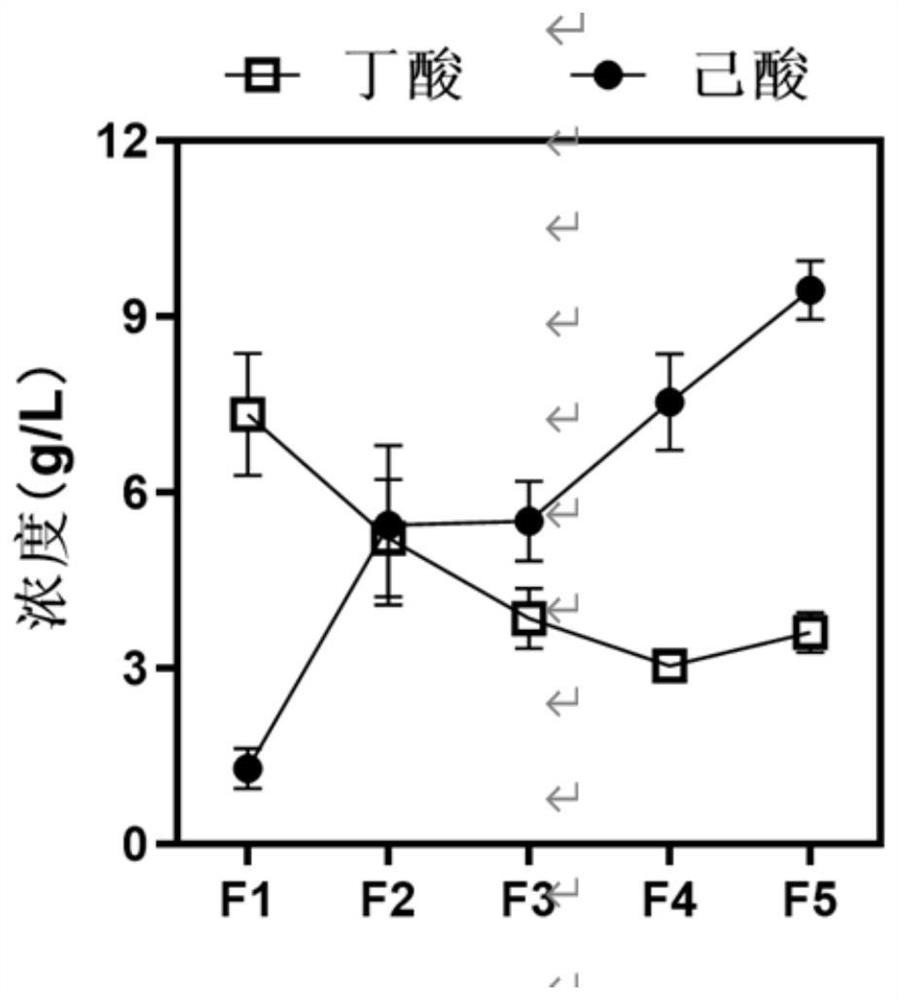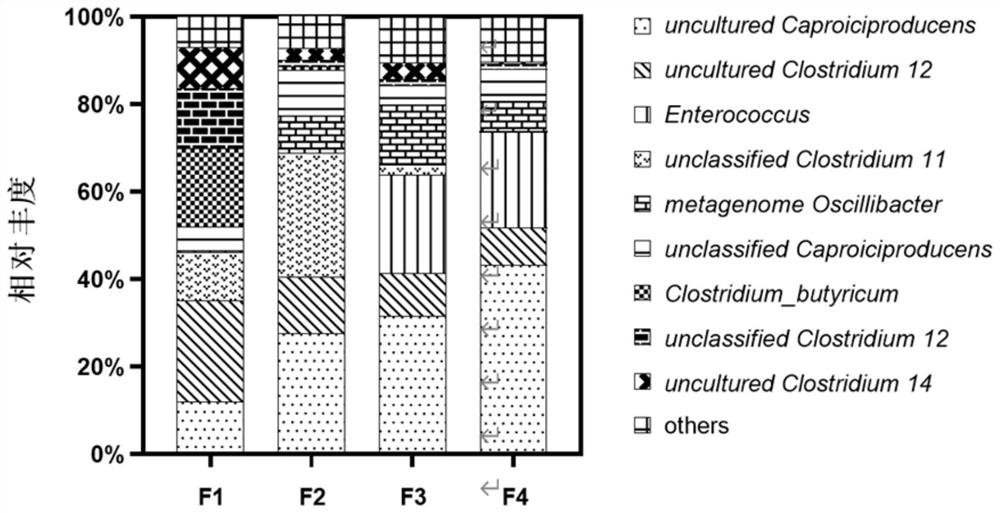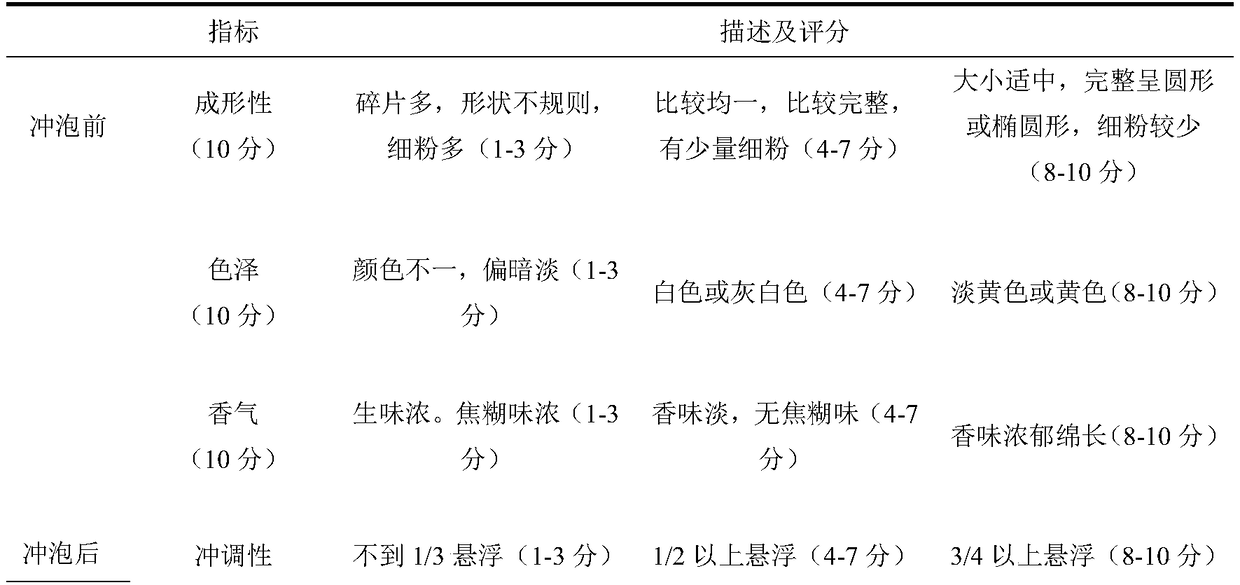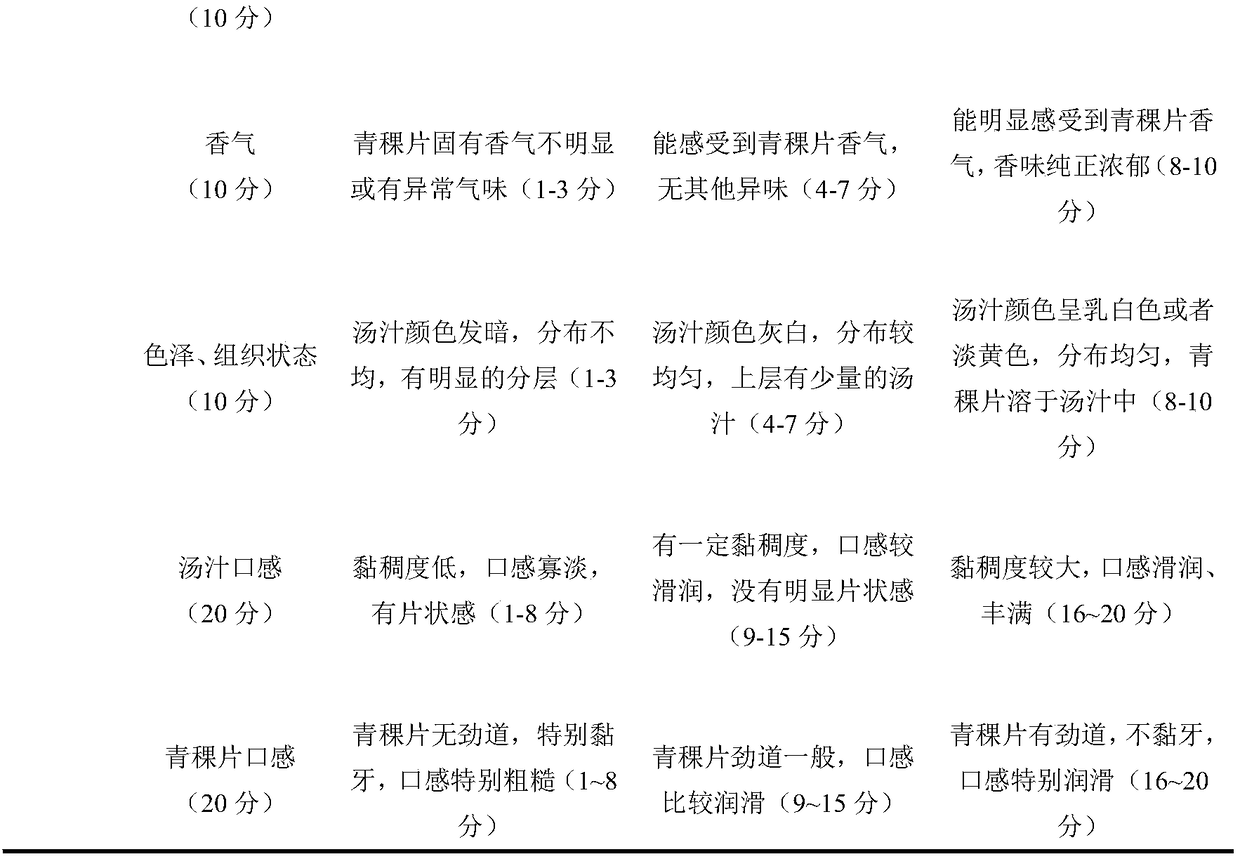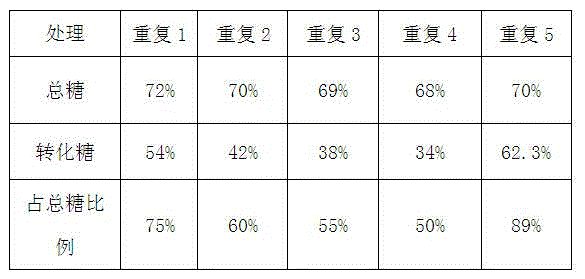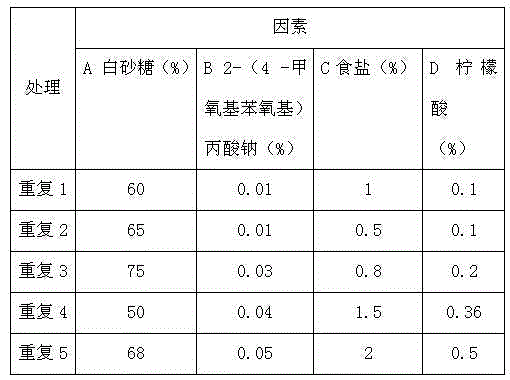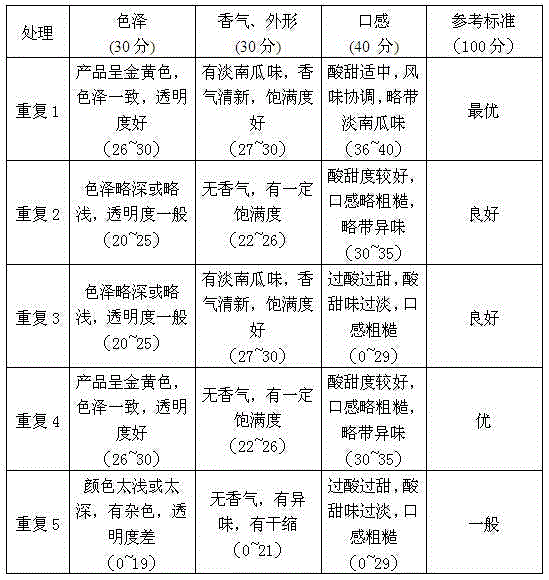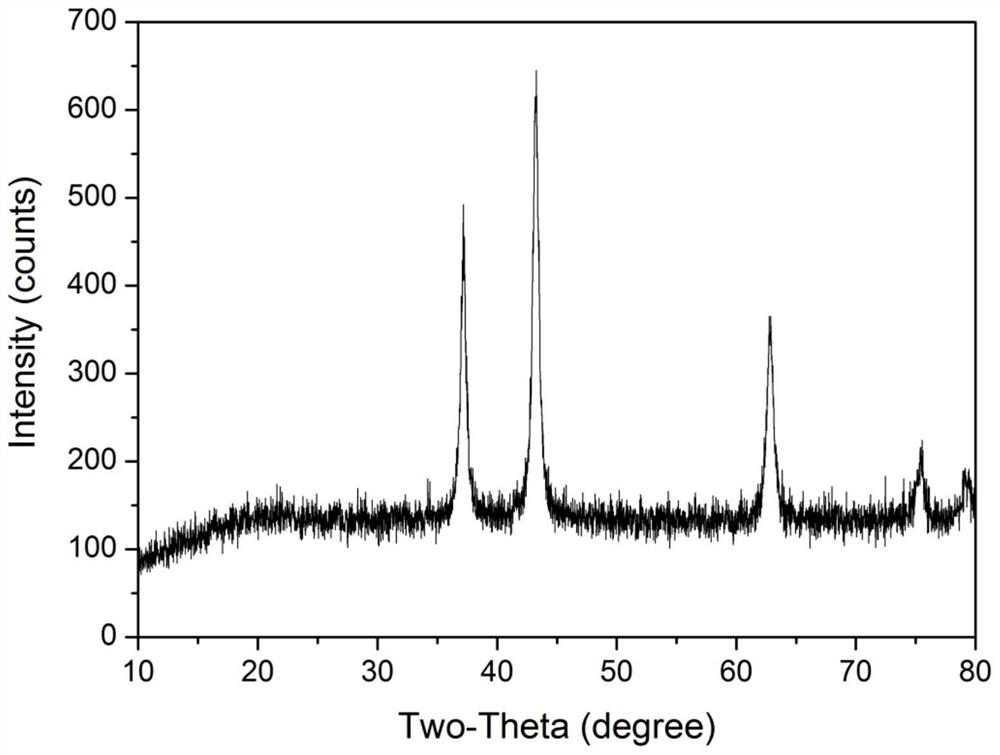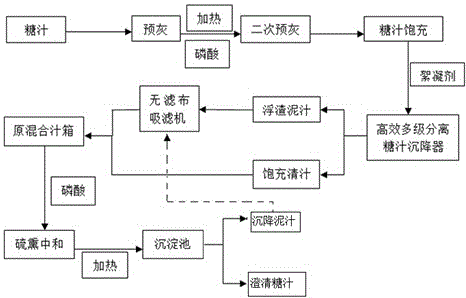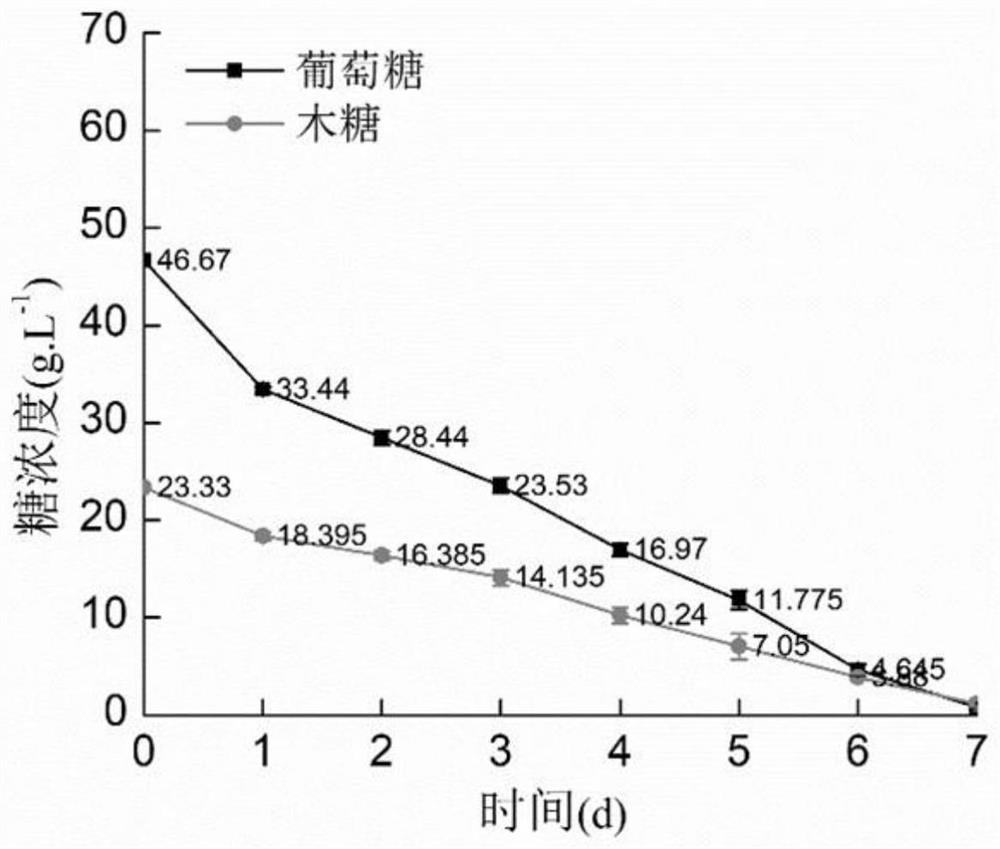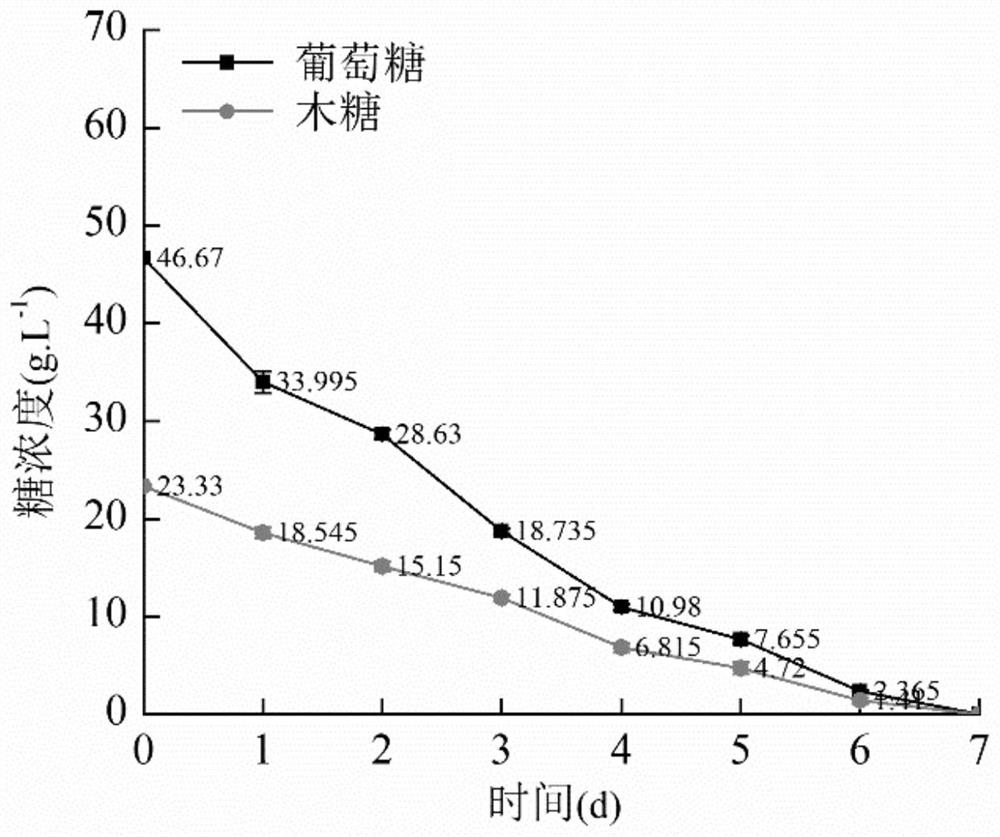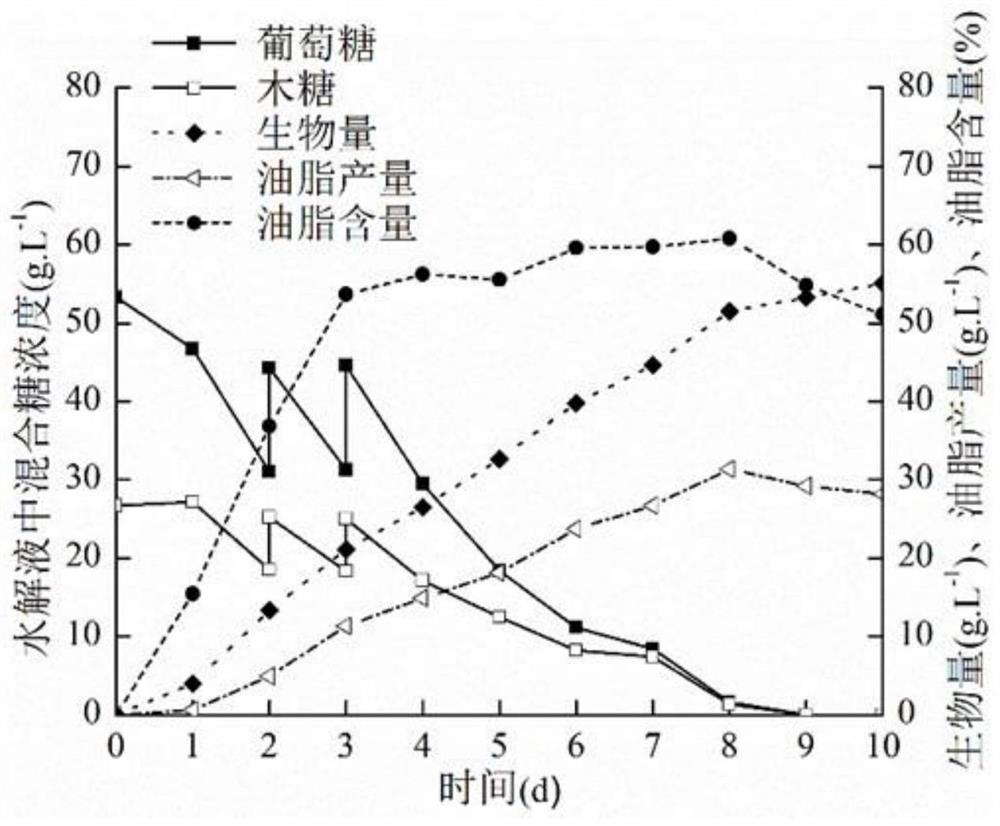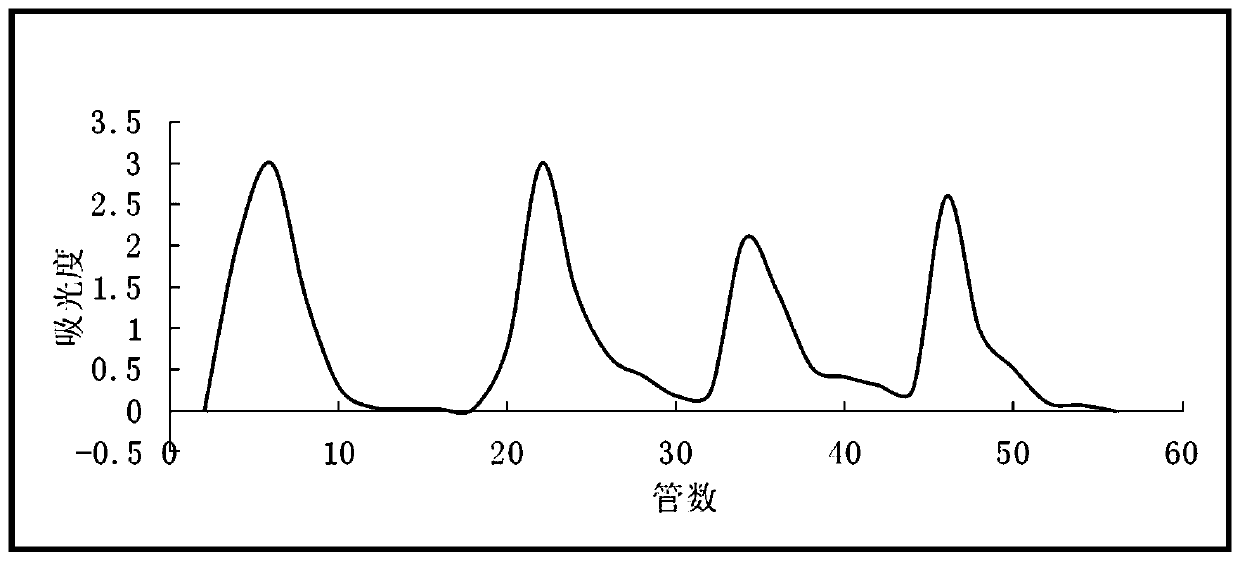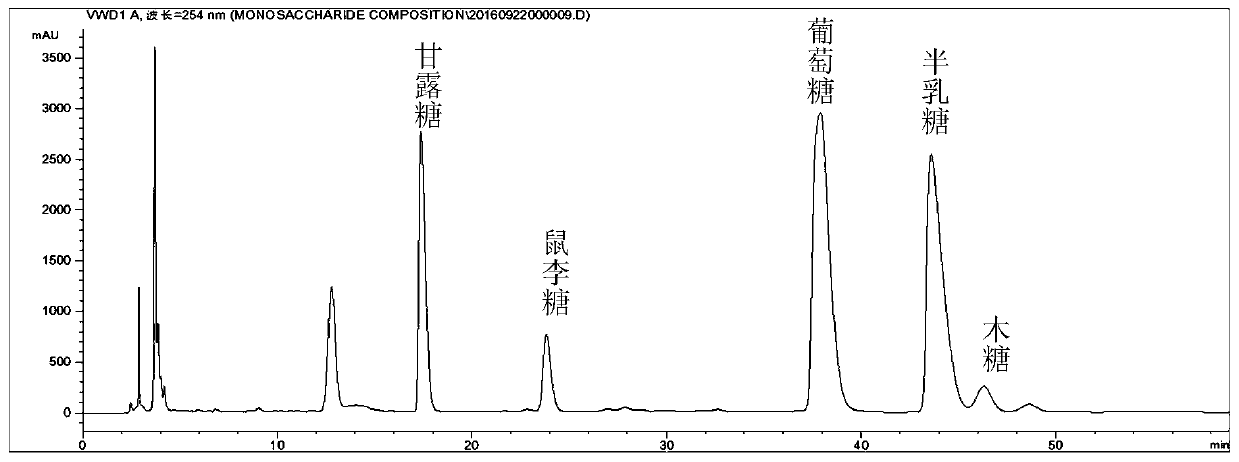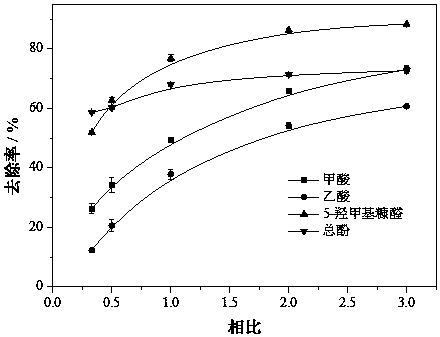Patents
Literature
Hiro is an intelligent assistant for R&D personnel, combined with Patent DNA, to facilitate innovative research.
74 results about "Sugar utilization" patented technology
Efficacy Topic
Property
Owner
Technical Advancement
Application Domain
Technology Topic
Technology Field Word
Patent Country/Region
Patent Type
Patent Status
Application Year
Inventor
Ethanol production using xylitol synthesis mutant of xylose-utilizing zymomonas
InactiveUS7741084B2Reduce productionIncreased ethanol productionBacteriaBiofuelsFructoseMicrobiology
Production of ethanol using a strain of xylose-utilizing Zymomonas with a genetic modification of the glucose-fructose oxidoreductase gene was found to be improved due to greatly reduced production of xylitol, a detrimental by-product of xylose metabolism synthesized during fermentation.
Owner:ALLIANCE FOR SUSTAINABLE ENERGY +1
A high-sugar and low-protein tilapia feed
InactiveCN102265983AIncrease dosageLow in proteinFood processingClimate change adaptationRapeseedVitamin B6 synthesis
The invention discloses a high-sugar and low-protein tilapia feed. Based on the total mass fraction of 100%, it consists of the following components: fish meal: 0-3%, soybean meal: 16-20%, rapeseed meal: 18-21%, cotton meal: 12-16%, secondary meal: 39- 42%, soybean oil: 2-3%, choline chloride: 0.2-0.5%, sodium chloride: 0.1-0.5%, calcium dihydrogen phosphate: 1-2%, vitamin B1: 0.004-0.006%, vitamin B6: 0.002-0.004%, zinc sulfate: 0.02-0.04%, chromium chloride: 0.0001-0.0003%, vitamin premix: 0.1-0.2% and mineral premix: 0.5-1%. The invention maximizes the amount of secondary powder in the feed, adds several plant protein sources to overcome the problem of amino acid imbalance of a single protein source, and at the same time significantly reduces the amount of fish meal. By optimizing and adjusting the feed formula, supplementing suitable vitamin and mineral premixes to adjust the sugar utilization ability of tilapia, so that the tilapia can make good use of the sugar compound of the present invention, avoiding the damage of fish liver caused by high sugar, Fatty liver is formed, and even the fish body becomes obese, and the symptoms of "big belly" appear.
Owner:广东省农业科学院畜牧研究所 +1
Method for producing amber acid by continuous fermentation or semi-continuous fermentation
InactiveCN101302546AIncrease production intensityLess investmentBacteriaMicroorganism based processesBatch fermentationSweet sorghum
The invention discloses a method for producing butane diacid through continuous fermentation or semi-continuous fermentation, which belongs to the bioengineering technical field. The invention provides application of Actinobacillus succinogenes in the method for continuously or semi-continuously preparing the butane diacid by utilizing carbohydrate raw materials such as cane molasses, corn starch syrup, Jerusalem artichoke hydrolysis syrup, sweet sorghum straw syrup, and lignocellulose hydrolysis syrup and so on. The method utilizes multi-step continuous fermentation or two-step semi-continuous fermentation, which can improve germ concentration and cell activity and can obtain high butane diacid output and high butane diacid production intensity; the method is easy to realize automatic and continuous operation; compared with batch fermentation, the method can save non-fermentation time such as repeated tank cleaning, sterilization and so on, so the production efficiency can be greatly improved; the semi-continuous fermentation for producing the butane diacid is easier to control fermentation parameters than the continuous fermentation, has high sugar utilization rate, target product yield and target product output, has simple and easy equipment and operation, and is suitable for industrialized production.
Owner:JIANGNAN UNIV
Method for improving sugar utilization rate of clostridium acetobutylicum in fermentation of mixed sugar
ActiveCN102796692AElimination of inhibitory effectsImprove xylose utilizationBacteriaTransferasesHigh concentrationWild type
The invention discloses a method for improving the sugar utilization rate of clostridium acetobutylicum in fermentation of mixed sugar. The method comprises the following steps of: performing gene engineering modification on clostridium acetobutylicum, so that compared with wild type clostridium acetobutylicum, the clostridium acetobutylicum has the advantages that expression of g1cG gene can be inhibited, and the expression and activity of xylose transportprotein, xylose isomerase, and / or xylulokinase can be improved; and applying the obtained clostridium acetobutylicum which is subjected to gene engineering to fermentation of sugar. By the method, more xylose and arabinose can be used by clostridium acetobutylicum in the fermentation of the mixed sugar, a solvent product with high concentration can be produced, and the product yield can be improved; and the method has excellent industrial application prospect.
Owner:南京食气生化科技有限公司
Glucose and xylose co-utilization in E. coli
Owner:CODEXIS INC
Low-calorie solid milk tea containing prebiotics and preparation method of solid milk tea
InactiveCN104397188APromote absorptionImprove immunityMilk preparationPre-extraction tea treatmentBiotechnologySkimmed milk powder
The invention relates to low-calorie solid milk tea containing prebiotics and a preparation method of the solid milk tea, and belongs to the technical field of solid drinks and nutritional foods. The low-calorie solid milk comprises the following raw materials: skimmed milk powder, maltodextrin, optimized tea powder, water-soluble dietary fibers, prebiotics, wheat oligopeptides, erythritol and stevioside. The milk tea product produced by the technology is rich in nutrients such as prebiotic factors, dietary fibers, small molecule peptides and trace elements and very low in fat and heat, has the effects of relaxing bowels, resisting fatigue, improving immunity, resisting oxidation, regulating microecological balance and health of a human body and the like, is simple to prepare, low in cost and suitable for most of people, and has a wide market prospect.
Owner:BAOLINGBAO BIOLOGY
Clostridium beijerinckii strain and applications thereof
The invention discloses a clostridium beijerinckii strain CM 20 with high yield of butanol, wherein the classification name of the clostridium beijerinckii strain CM 20 is Clostridium beijerinckii, and the clostridium beijerinckii strain CM 20 is preserved in the China General Microbiological Culture Collection Center (CGMCC) on June 17, 2014, and has the preservation number CGMCC No.9354. The clostridium beijerinckii strain CM 20 provided by the invention can be used for producing butanol with high yield through fermentation by utilizing lignocellulose enzymatic hydrolysate detoxified by calcium hydroxide, the total solvent yield can achieve 19g / l, the sugar utilization ratio is high, the yield of butanol is high, and the problems that the capacity of the strain and the raw materials are insufficient when the traditional biological fermentation method is adopted for producing butanol are solved.
Owner:CHINA PETROLEUM & CHEM CORP +1
Method for processing compound oat nutritious food with liquid fermentation tricholoma matsutake mycelium polysaccharide
The invention relates to a method for processing a nutritious health food, in particular to a method for processing a compound oat nutritious food added with liquid fermentation tricholoma matsutake mycelium polysaccharide. The method comprises the following steps of: performing liquid fermentation on tricholoma matsutake to culture tricholoma matsutake mycelium; extracting tricholoma matsutake polysaccharide from the tricholoma matsutake mycelium; and combining the tricholoma matsutake polysaccharide with oats to produce the oat nutritious food. The compound oat nutritious food with the liquid fermentation tricholoma matsutake mycelium polysaccharide has the advantages of rich nutrition and low price, and ensures that common people can enjoy the daintiness, the nutrition and an anti-cancer effect of the tricholoma matsutake whle eating the oat instant product; and the method not only reduce the price of the tricholoma matsutake product, but also improves the nutrient components of the conventional oat product and combines the two aspects to provide a convenient, quick and nutritious good food for the consumers in general, and simultaneously promote the industrialized development of edible fungi, so the method can inevitably create huge economic benefit and social benefit.
Owner:冯磊
Method for preparing fuel ethanol by low-energy consumption wood raw material
InactiveCN101597625AReduce energy consumptionBiofuelsMicroorganism based processesCelluloseHigh concentration
The invention relates to a method for preparing fuel ethanol by adopting a respective fermentation technology of xylose solution and woodpulp enzymolysis solution after completing slicing and dilute acid pretreatment of wood. Due to the adoption of novel processes including dilute sulphuric acid pretreatment and high-concentration jordaning / enzymolysis, the method simplifies production equipment, remarkably saves electricity consumption, operation man hour and production cost during raw material pretreatment and increases the utilization efficiency of xylans; meanwhile, the recovery rate of xylose is over 80.0 percent, and the enzyme hydrolysis yield of cellulose exceeds 65.0 percent. The method realizes efficient utilization of the xylose and glucose and quick fermentation of ethanol, and ensures that the sugar utilization rate and ethanol yield of the xylose and glucose ethanol fermentation respectively reach 82.5 percent, 85.0 percent, 90.0 percent and 92.0 percent.
Owner:NANJING FORESTRY UNIV
Method for producing succinic acid by using ferment of molasses raw material
InactiveCN101092638ALow costAlleviate the shortage of petrochemical resourcesMicroorganism based processesFermentationChemical synthesisRumen
This invention discloses a method for producing succinic acid from waste syrup by fermentation. The method comprises: screening rumen to obtain Actinobacillus succinogenes (CGMCC 1593), and performing fed batch anaerobic fermentation on waste syrup (reducing sugar concentration = 50-100 g / L) in the presence of CO2 or N2 at a pH value of 5.5-7.5 for 30-60 h. The concentration of succinic acid can reach 30-60 g / L. The conversion rate is 70-84%, the productivity is 0.9-1.2 g / L.h, and the sugar utilization rate is 90-95%. The method utilizes renewable resource (waste syrup) instead of pure glucose as the carbon source to produce succinic acid. The method has a low cost, and is environmentally friendly.
Owner:HANGZHOU XINFU TECH CO LTD +1
Low-yield isoamylol and high-yield beta-phenylethanol yeast, isolated culture method thereof and application of yeast
ActiveCN110205253AImprove featuresExcellent sugar toleranceFungiAlcoholic beverage preparationBiotechnologyPhenethyl alcohol
The invention relates to low-yield isoamylol and high-yield beta-phenylethanol yeast, an isolated culture method thereof and an application of the yeast. The low-yield isoamylol and high-yield beta-phenylethanol yeast is named as a Candida humilis YS023A strain, the strain is collected in a general microorganism center of a China Committee for Culture Collection of Microorganisms on No. 3, No. 1 courtyard Beichen West Road, Chaoyang District, Beijing on February 25, 2019, and the collection number of the strain is CGMCC NO:17257. The yeast has excellent characteristics of low-yield isoamylol and high-yield beta-phenylethanol and excellent sugar, alcohol and acid resistance, and the sugar utilization rate, the fermentation capacity and the ethanol production capacity of the yeast are good.The yeast is used for production of strong-flavor and rice-flavor Baijiu and has great significance for increasing of high-quality product rate and wine outlet rate of raw wine.
Owner:JIANGSU KINGS LUCK BREWERY
Biomembrane-electrodialysis coupling continuous production technology of L-lactic acid
ActiveCN102041279ATake advantage ofReduce pollutionMicroorganism based processesFermentationUltrafiltrationGlucose polymers
The invention provides a biomembrane-electrodialysis coupling continuous production technology of L-lactic acid. The production technology comprises the following steps: a clear liquid biomembrane column reactor is used to perform continuous anaerobic fermentation, the lactic acid producing strains are adsorbed by combined perforated ring filler, an ultrafiltration membrane is used to filter the fermentation liquor, thalli are blocked by the ultrafiltration membrane, the blocked thalli and liquid are sent back to the biomembrane column reactor, and L-lactic acid is separated through electrodialysis. The method provided by the invention uses the biomembrane column reactor to adsorb lactic acid producing strains on the membrane and uses the ultrafiltration membrane to block lactic acid bacteria, thus the thalli concentration and sugar utilization rate can be effectively increased, and the lactic acid concentration, the acid producing rate and the conversation rate from glucose to lacticacid can be increased greatly.
Owner:CHINA PETROLEUM & CHEM CORP +1
Method for increasing sugar utilization rate and yield of citric acid in citric acid fermentation and application
ActiveCN108018216AIncrease productionReduced reducing sugar contentFungiMicroorganism based processesIsomaltoseEconomic benefits
The invention belongs to the technical field of gene engineering and fermentation engineering and particularly relates to a method for increasing sugar utilization rate and yield of citric acid in citric acid fermentation and an application. The method is implemented by knocking out glucosyltransferase genes in Aspergillus niger for citric acid production to construct genetic engineering strains and applying the genetic engineering strains to the citric acid fermentation. By means of knocking-out of the glucosyltransferase genes, content of reducing sugar can be reduced by 8.96%-9.89%, contentof total sugar is reduced by 9.78%-10.26%, content of isomaltose is reduced by 6.12%-7.01%, the yield of citric acid is increased by 10.28%-12.16%, at least 1,5000 tons of residual sugar can be reduced in a year, and the method has remarkable economic benefit.
Owner:TIANJIN UNIVERSITY OF SCIENCE AND TECHNOLOGY
Mutant microorganism with enhanced sugar utilization and methods for preparing the same
ActiveUS20130309744A1Enhanced sugar utilizationInhibitory activityBacteriaEnzymesCelluloseMicroorganism
The present invention relates to a mutant microorganism with enhanced sugar utilization and methods for preparing the same. The mutant strain is capable of effectively utilizing various sugars including cellobiose and xylose, and can thus be useful in the production of biofuels, physiologically active materials, medicinal materials or industrial chemicals from cellulosic biomass. It also reduces the need for addition of one out of the three enzymes used in the saccharification of lignocellulose. It also eliminates the need for separate reactors to ferment pentose and hexose sugar.
Owner:UNIST ULSAN NAT INST OF SCI & TECH
Glucose and xylose co-utilization in e. coli
The present invention provides host cells having improved sugar utilization or co-utilization, methods of producing host cells having improved sugar utilization or co-utilization, and methods of using host cells having improved sugar utilization or co-utilization. The present invention provides E. coli strains that co-utilize glucose and xylose in the presence of glucose and xylose, wherein the cell produces the product.
Owner:CODEXIS INC
Method for preparing hydrogen gas
InactiveCN101294167AEasy to understandMicroorganism based processesFermentationBiotechnologyPhosphate ion
The invention discloses a method for producing hydrogen by culturing hydrogen-producing microbes in a culture medium containing phosphate oils. Phosphate is added in a cellular environment to simultaneously promote rapid growth and rapid recovery of ATP, thus controlling the ATP level and oxidization-reduction potential in cells, and accelerating consumption of carbon source and the production efficiency and hydrogen. Additionally, the phosphate can be recycled in the culture system without contaminating the environment. By using the method of the invention, the hydrogen production rate is improved by more than three times, the sugar utilization rate is improved by five times, and the hydrogen transformation efficiency is remarkably improved.
Owner:TSINGHUA UNIV
Method for green synthesis of magnetic nanometer Fe3O4 particles from water hyacinth and application
ActiveCN111847525AWidely distributedLow costMicroorganism based processesFerroso-ferric oxidesGlucose utilizationHydrolysate
The invention discloses a method for green synthesis of magnetic nanometer Fe3O4 particles from water hyacinth and application. The preparation method comprises the following steps: mixing an extractof fresh leaves of the water hyacinth with 0.2 mol / L Fe<3+> and Fe<2+> solutions, adjusting a pH value twice, conducting continuous stirring for a reaction, further performing permanent magnet separation, carrying out suction filtration, carrying out washing with absolute ethyl alcohol and distilled water, and successively carrying out vacuum drying, grinding and sieving so as to obtain the environment-friendly synthesized magnetic nanometer Fe3O4 particles. The magnetic nanometer Fe3O4 particles s with a certain concentration synthesized by the method are added into a system for hydrogen production through fermentation of a straw hydrolysate, and have a remarkable effect of promoting the synthesis of biological hydrogen and the utilization of hydrolyzed sugar, so accumulated hydrogen yield, glucose utilization rate and xylose utilization rate obtained under the optimal addition concentration are respectively improved by 22.6%, 6.5% and 6.7% compared with control treatment. The methodhas the advantages of environmental protection performance, simple and feasible process, mild preparation conditions, cheap and easily available raw materials and the like.
Owner:ANHUI UNIVERSITY OF TECHNOLOGY AND SCIENCE
Corynebacterium glutamicum transcription regulation factor IpsA mutant and application
ActiveCN111607601AImprove utilizationImprove the ability to use mixed sugarBacteriaMicroorganism based processesBase JNucleotide
The invention discloses a corynebacterium glutamicum transcription regulation factor IpsA mutant and application thereof. The nucleotide sequence of a gene for encoding the IpsA mutant is shown as SEQID NO: 1. The corynebacterium glutamicum transcription regulation factor mutation ipsA (C331T) has a combined effect with single base mutation of a xylose utilization operon gene and deletion mutation of an arabinose transporter gene, so that the xylose utilization capability of corynebacterium glutamicum and the mixed sugar utilization capability of glucose xylose can be improved.
Owner:TIANJIN UNIV
Bacillus mucilaginosus bacterial fertilizer for farm onsite fermentation and applications thereof
InactiveCN105439724AInhibition of reproductionInhibition multiplierBacteriaAlkali orthophosphate fertiliserEscherichia coliPotassium
The invention relates to a bacillus mucilaginosus bacterial fertilizer for farm onsite fermentation, a preparation method thereof and applications thereof. The bacterial fertilizer comprises the following raw materials: bacillus mucilaginosus powder, colistin sulfate, natamycin, methionine, leucine, corn flour, soybean cake powder, fructose, disodium hydrogen phosphate, potassium chloride, and brown sugar. The colistin sulfate and natamycin in the bacterial fertilizer can inhibit the growth of fungi (such as pathogenic fungi, yeast, etc.) and gram negative bacteria (such as colibacillus, salmonella, etc.) during the fermentation process. The spore germinator (leucine, fructose, and methionine) can rapidly promote the germination of spores of bacillus mucilaginosus and improve the germination rate of spores. The provided bacterial fertilizer can be applied to the onsite fermentation and propagation in a simple and crude farm. The required equipment is simple. The using amount of bacterium is little. The cost is low. The fermentation broth obtained through onsite fermentation has the advantages of high content, good activity and few contaminating bacteria. The bacterial fertilizer can decompose potassium, prevent disease, promote growth, increase output, and improve product quality. The effect is stable.
Owner:FOSHAN YANHUI BIOTECH CO LTD
Method for rapidly enriching glucose utilization type caproic acid producing flora from pit mud and application
ActiveCN112812997AShorten the production cycleSupport growthBacteriaMicroorganism based processesBiotechnologyGlucose utilization
The invention discloses a method for rapidly enriching glucose utilization type caproic acid producing flora from pit mud and application, and belongs to the technical field of brewing microorganisms and biology. By adopting the method for improving the abundance and caproic acid producing capacity of the glucose utilization type caproic acid producing flora in the pit mud, the glucose utilization type caproic acid producing flora and a bacterial solution thereof are obtained, the caproic acid yield is in a continuous rising trend, and through continuous passage, the caproic acid yield is increased to 9.5g / L from 1.3g / L; in the enriching process, the relative abundance of caproic acid bacteria microorganisms capable of utilizing glucose is gradually increased and increased to 43% from 12%. The method can be used for improving the acidity and ester flavor of baijiu and can also be applied to caproic acid fermentation with glucose as a carbon source.
Owner:JIANGNAN UNIV
High-fiber high-protein highland barley and production method thereof
InactiveCN108991501AReduce the content of digestible sugarGood rehydrationFood shapingFiberFermentation
The invention provides high-fiber high-protein highland barley and a production method thereof. The production method comprises the following steps: 1) peeling: peeling the highland barley raw material to obtain peeled highland barley grain; 2) fermentation and desugaring: taking the peeled highland barley grain, adding water, soaking, cooking, and fermenting and desugaring the cooked highland barley grain to obtain sugar-free highland barley grain. The invention provides a processing technology of the instant highland barley with low sugar, high fiber and high protein; a biological enzymolysis fermentation technology is adopted to remove digestive polysaccharides such as starch and the like in the highland barley, and a low-sugar, high-dietary fiber and rich-protein instant highland barley tablet product which is good in rehydration, easy to brew and mature and moist in taste is produced efficiently and low-costly by utilizing a tableting technology and a microwave-hot air combined drying technology. A highland barley tablet developed by the invention adopts the technologies of microbial fermentation and enzymatic hydrolysis, so that the content of starch and other digestive sugars in the highland barley grain is reduced, and the instant highland barley product with low sugar, high dietary fiber and protein content is prepared by tableting and drying.
Owner:SOUTHWEST UNIVERSITY
Salty pumpkin preserves and preparation method thereof
InactiveCN104585457AGood antibacterial effectLow sweetnessConfectionerySweetmeatsBiotechnologySugar utilization
The invention provides salty pumpkin preserves and a preparation method thereof. The preparation method comprises the following steps: slicing mature pumpkins into strips with the thickness of about 1cm, then performing vacuum sugar penetration in special dosing liquid, and inhibiting white granulated sugar by utilizing sodium 2-(4-methoxyphenoxy) propanoate contained in the dosing liquid, so that not only can the pumpkin preserves have high antibacterial effect, and also the sweetness of the pumpkin preserves can be reduced, the hardening and color protection treatment are carried on the pumpkin preserves so that the surfaces of the finished pumpkin preserves are gold yellow and have consistent color and good transparency, and the finished pumpkin preserves have mild pumpkin flavor, are good in fullness, proper in sweetness, and harmonized in flavor; tests prove that the ratio of inverted sugar to total sugar in the finished preserves can be effectively controlled by utilizing the recorded sugar penetration treatment steps and the special dosing liquid, and sugar flowing and sugar return phenomena of the finished preserves can be avoided.
Owner:ZHANGZHOU TONGYU FOOD
Method for preparing nickel oxide nanoparticles from water hyacinth and application
ActiveCN111847530ARealize green and controllable equipmentStable traitsMaterial nanotechnologyBacteriaHydrolysateNanoparticle
The invention discloses a method for preparing nickel oxide nanoparticles from water hyacinth and application. According to the invention, the water hyacinth is used as a raw material for green synthesis of the NiO nanoparticles. The preparation method comprises the following steps: mixing an extract of fresh stems and leaves of the water hyacinth with a NiCl2 solution, conducting continuous stirring for a reaction, further regulating the pH value of a reaction solution to 10-11, performing standing and centrifuging, carrying out washing with absolute ethyl alcohol and distilled water, profrming calcining in a muffle furnace, and successively carrying out grinding and sieving to obtain the green synthetic NiO nanoparticles. The NiO nanoparticles with a certain concentration synthesized bythe method are added into a system for hydrogen production through fermentation of a straw hydrolysate, and have a remarkable effect of promoting biohydrogen synthesis and hydrolysis sugar utilization, so an accumulative hydrogen production amount obtained at the optimal addition concentration is remarkably increased compared with contrast treatment. The preparation method of the NiO nanoparticlesis simple, reaction process is greatly simplified, raw materials are low in price, cost is reduced, and the obtained nanoparticles are stable in performance, uniform in particle size and remarkable in application effect.
Owner:ANHUI UNIVERSITY OF TECHNOLOGY AND SCIENCE
Carbon-sulfur combining sugar juice carbonation and clarifying method through CO2 generated from alcohol in production of sugar from sugarcane
InactiveCN104357587AAchieve emissionsAvoid wastingPurification using chemicalsPurification using alkaline earth metal compoundsAlcohol productionProcess engineering
The invention relates to a carbon-sulfur combining sugar juice carbonation and clarifying method, and belongs to the technical field of a sugar producing process. The method, on the basis of a sulfurous method, makes use of di-carbonation process control point of a carbonic acid method process and takes CO2 generated from molasses alcohol production as a sugar juice clarifying agent to replace SO2 of the sulfurous method, so as to reduce SO2 consumption of the sulfurous method. The method disclosed by the invention, by taking the CO2 generated from molasses alcohol production as a bubble producing air source and in combination of the sulfurous method, the carbonic acid method and an air floatation clarifying technology, can significantly improve clarifying efficiency and effect and reduce consumption of sulfur; and meanwhile, quality of white sugar is improved and pollution of CO2 emission on air is relieved.
Owner:LINCANG NANHUA SUGAR IND +1
Method for preparing ester flavor type fruit wine
InactiveCN108707520AHigh fermentation activityAdd flavorMicroorganism based processesWine preparationFruit wineContinuous fermentation
The invention discloses a method for preparing ester flavor type fruit wine. According to addition of preferred composite yeasts and fermentation promoters, the fermentation activity of the compositeyeasts is improved, the brewing taste and comprehensive flavor of the fruit wine can be enriched, the fruit wine is endowed with strong ester flavor, and due to organic combination with fruity flavorof the fruit wine, the flavor of the fruit wine is greatly improved; the preparation method disclosed by the invention is applicable to continuous fermentation production of the fruit wine, has stablefermentation performance and also has adjustable fermentation flexibility; the fermentation time is effectively shortened, the production efficiency is improved, and the production cost is reduced; and the prepared finished fruit wine is high in total sugar utilization rate, low in content of soluble solid residues after fermentation and excellent in fruit wine quality.
Owner:JIANGSU HENGSHUN VINEGAR IND
Method for identifying sugar-doped dried sea cucumber
InactiveCN102495012AImprove accuracyEasy to operatePreparing sample for investigationColor/spectral properties measurementsHigh concentrationWater baths
The invention discloses a method for identifying a sugar-doped dried sea cucumber. The method is characterized by comprising the following steps of: vibrating and extracting exogenous sugar in the sea cucumber in a water bath at certain temperature by using an aqueous solution of ethanol at high concentration, wherein polysaccharide in the dried sea cucumber cannot be extracted, so that endogenous sugar and the exogenous sugar in the dried sea cucumber can be identified well; and measuring the total content of the extracted sugar by using an optimized phonel-sulfate method. The method is easyto operate, and high in stability and high in accuracy, and is suitable for measuring the total content of the exogenous sugar in the dried sea cucumber; and by the method, the sugar-doped dried sea cucumber can be effectively identified.
Owner:YELLOW SEA FISHERIES RES INST CHINESE ACAD OF FISHERIES SCI
A Feed Additive for Improving the Utilization Rate of Pomfret Oval Pomfret Sugar
ActiveCN103892140BIncrease profitSave resourcesAnimal feeding stuffAccessory food factorsBiotechnologyAnimal science
The invention relates to a feed additive for increasing the sugar utilization rate of trachinotus ovatus and belongs to the technical field of feed processing. The feed additive is particularly composed of following components in parts by weight: 30-40 parts of chromium picolinate, 10-20 parts of chromium methionine, 10-20 parts of algal polysaccharides, 10-20 parts of vitamin C-2-polyphosphoester, 10-20 parts of glycine betaine, 5-10 parts of phospholipid, 5-10 parts of dimethyl-beta-dimethylpropiothetin and 10-20 parts of microcrystalline celluloses. According to the feed additive disclosed by the invention, according to a formula can improve the utilization rate of the sugar in a feed by the trachinotus ovatus can be increased , so as to reduce the utilization of animal protein sources including fish meal and the like in the feed and develop and expand a feed resource; furthermore, the survival rate and the growth speed of the trachinotus ovatus are increased, the feed cost is reduced and the economic benefits are improved.
Owner:亿盛(阳江)生物技术有限公司
Oleaginous yeast and application thereof
ActiveCN111635867AWide variety of sourcesLow costFungiMicroorganism based processesCelluloseMicroorganism
The invention discloses oleaginous yeast and application thereof, and belongs to the technical field of microorganisms. The Trichosporon delbrueckii provided by the invention is preserved in the ChinaCenter for Type Culture Collection on May 21, 2020, and the preservation number of the Trichosporon delbrueckii is CCTCC NO: M2020139. According to the oleaginous yeast provided by the invention, cheap hydrolysate of lignocellulose biomass can be used as a substrate, and meanwhile, xylose and glucose in the hydrolysate are used for producing grease, so that sugar utilization efficiency and production strength are improved, and after fed-batch fermentation is carried out for 8 days, the grease yield can reach 31.33 g / L, and the grease content is 60.83%. Therefore, waste resources can be recycled, production cost is reduced, and the oleaginous yeast has a wide application prospect.
Owner:JIANGNAN UNIV
Extraction method and application of usnea longissima polysaccharide
ActiveCN110724206AHigh purityExcellent deproteinization effectDigestive systemImmunological disordersFreeze-dryingCentrifugation
The invention relates to the field of edible and medicinal processing, and in particular relates to an extraction method and application of usnea longissima polysaccharide. The extraction method comprises the following steps: by using usnea longissima as a raw material, performing grinding, performing degreasing, performing drying to obtain powder, mixing the powder and water to form a dispersionliquid, adding cellulase into the dispersion liquid, performing enzymolysis and performing heating extraction, separating filter residues, and concentrating the supernatant to obtain a concentrated solution; mixing the concentrated solution and an alcohol, performing alcohol precipitation, performing filtering to separate the precipitate, dissolving the precipitate into water, performing centrifugation, performing dialysis desalting, and performing freeze drying on the product obtained after dialysis desalting to obtain crude sugar; and performing deproteinization treatment on the crude sugarby using a Sevage method to obtain a deproteinized solution, performing adsorption on polysaccharide in the deproteinized solution by using an ion exchange column, performing elution on the polysaccharide, after the elution is completed, performing concentration, performing dialysis desalting, and performing freeze drying to obtain the usnea longissima polysaccharide. The method can extract the high-purity usnea longissima polysaccharide; and the obtained product can be directly used for activating intestinal immunity.
A detoxification method for lignocellulosic raw material prehydrolyzed sugar solution
ActiveCN104862345BImprove fermentation effectImprove utilization rateBiofuelsFermentationFiberEthanol yield
The invention discloses a detoxification method for a wood fiber raw material pre-hydrolysis sugar liquid. According to the detoxification method, a pre-hydrolysis concentrated sugar liquid obtained after dilute sulphuric acid steam explosion pretreatment is taken as a raw material and an ionic liquid is taken as an extraction agent for removing of fermentation inhibitors in the wood fiber raw material pre-hydrolysis concentrated sugar liquid, wherein the ionic liquid is a disubstituted imidazole cationic liquid. The detoxification method has the advantages that the organic ionic liquid is adopted for extraction treatment on a wood fiber raw material pre-hydrolysis concentrated sugar liquid, and the treatment result shows that on the premise that a little fermented sugar is lost, the removing rates of formic acid, acetic acid, levulinic acid, furfuraldehyde, hydroxymethyl furfural and total phenolics in the prehydrolysis concentrated sugar liquid reach 64.54%, 54.88%, 100%, 100%, 87.08% and 70.44% respectively; in the same period, the sugar utilization rate is improved by 74.34%, the ethanol yield is improved by 82.91%, and the fermentation circle is shortened.
Owner:NANJING FORESTRY UNIV
Popular searches
Features
- R&D
- Intellectual Property
- Life Sciences
- Materials
- Tech Scout
Why Patsnap Eureka
- Unparalleled Data Quality
- Higher Quality Content
- 60% Fewer Hallucinations
Social media
Patsnap Eureka Blog
Learn More Browse by: Latest US Patents, China's latest patents, Technical Efficacy Thesaurus, Application Domain, Technology Topic, Popular Technical Reports.
© 2025 PatSnap. All rights reserved.Legal|Privacy policy|Modern Slavery Act Transparency Statement|Sitemap|About US| Contact US: help@patsnap.com
